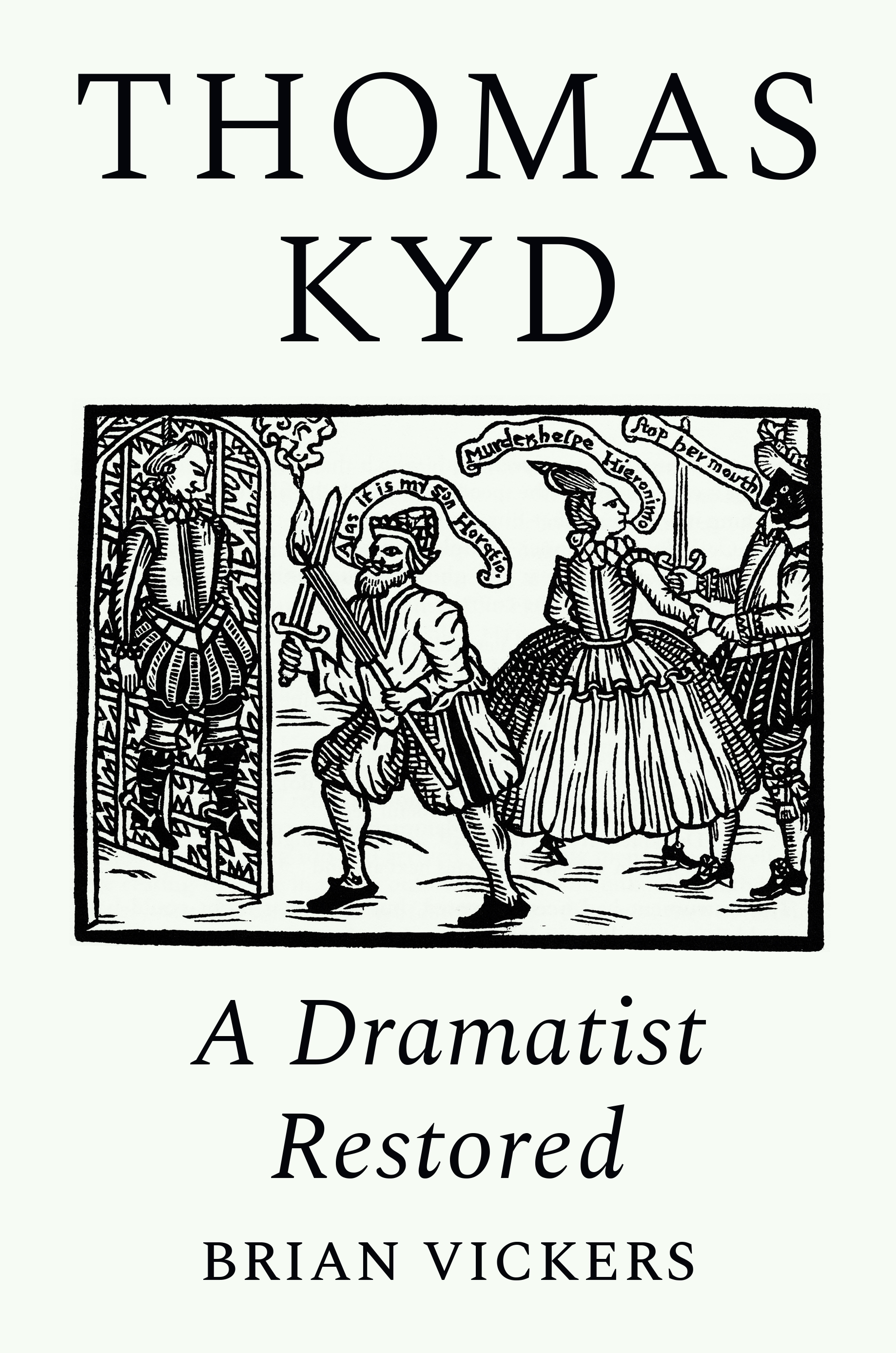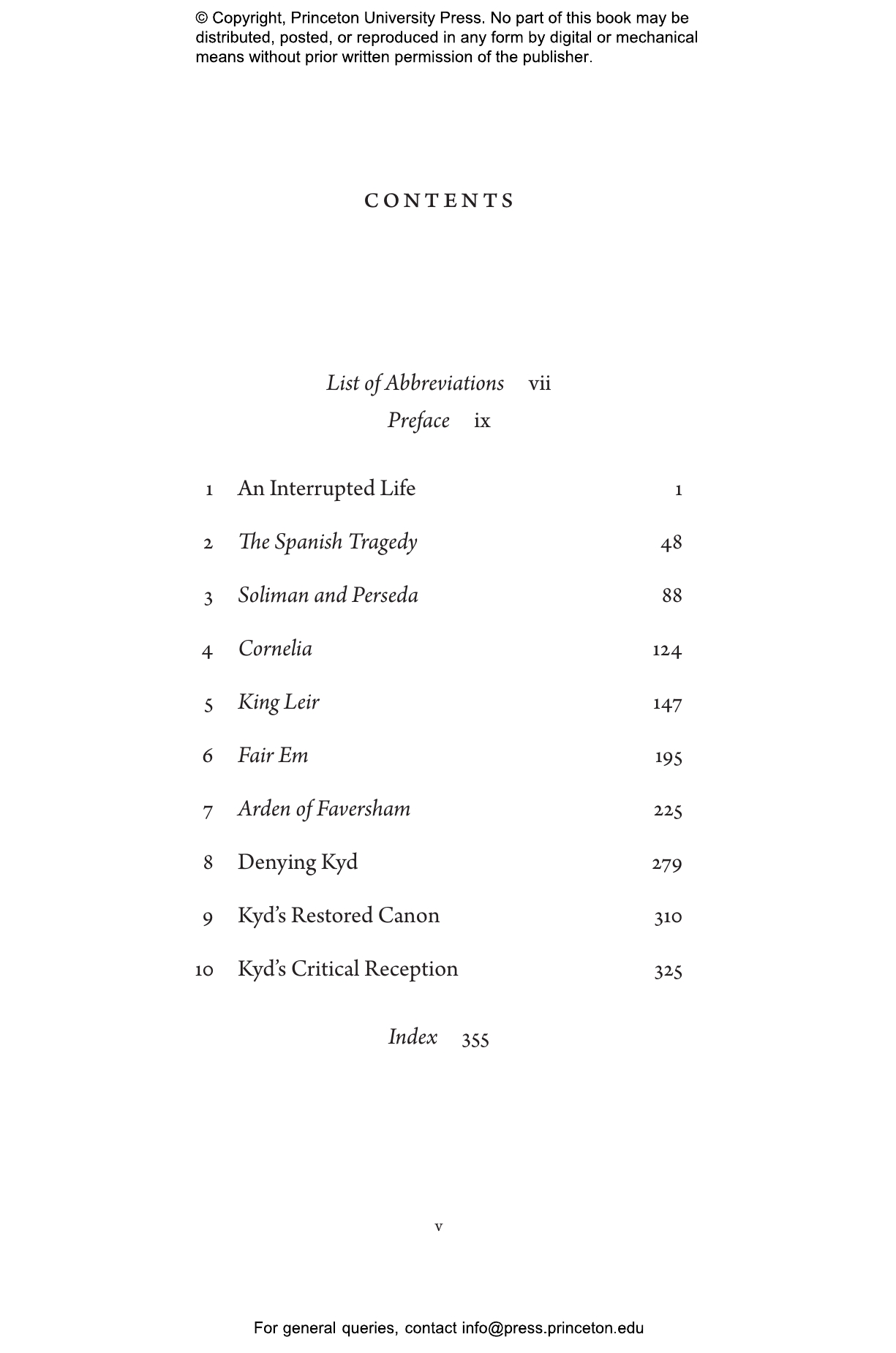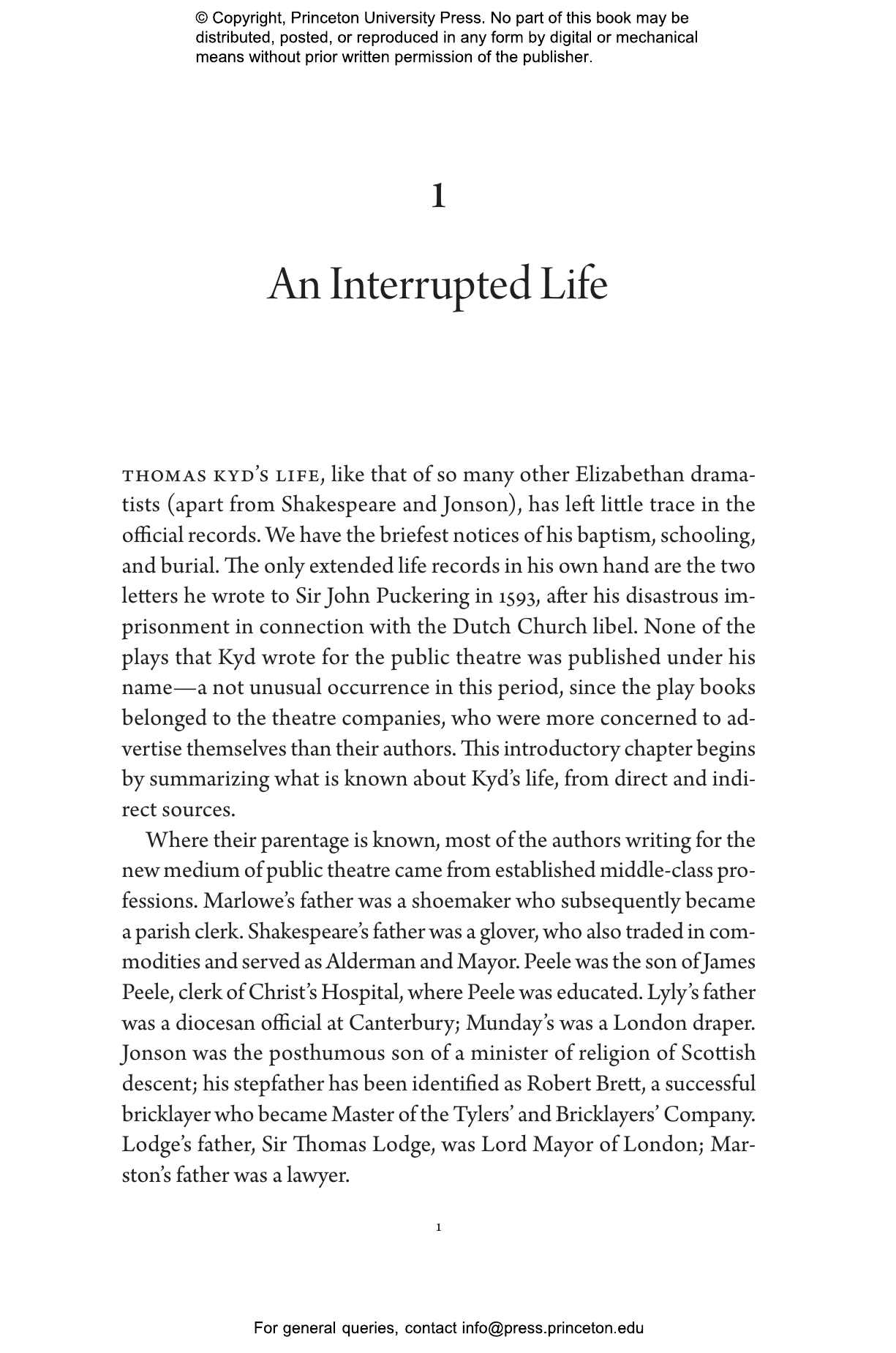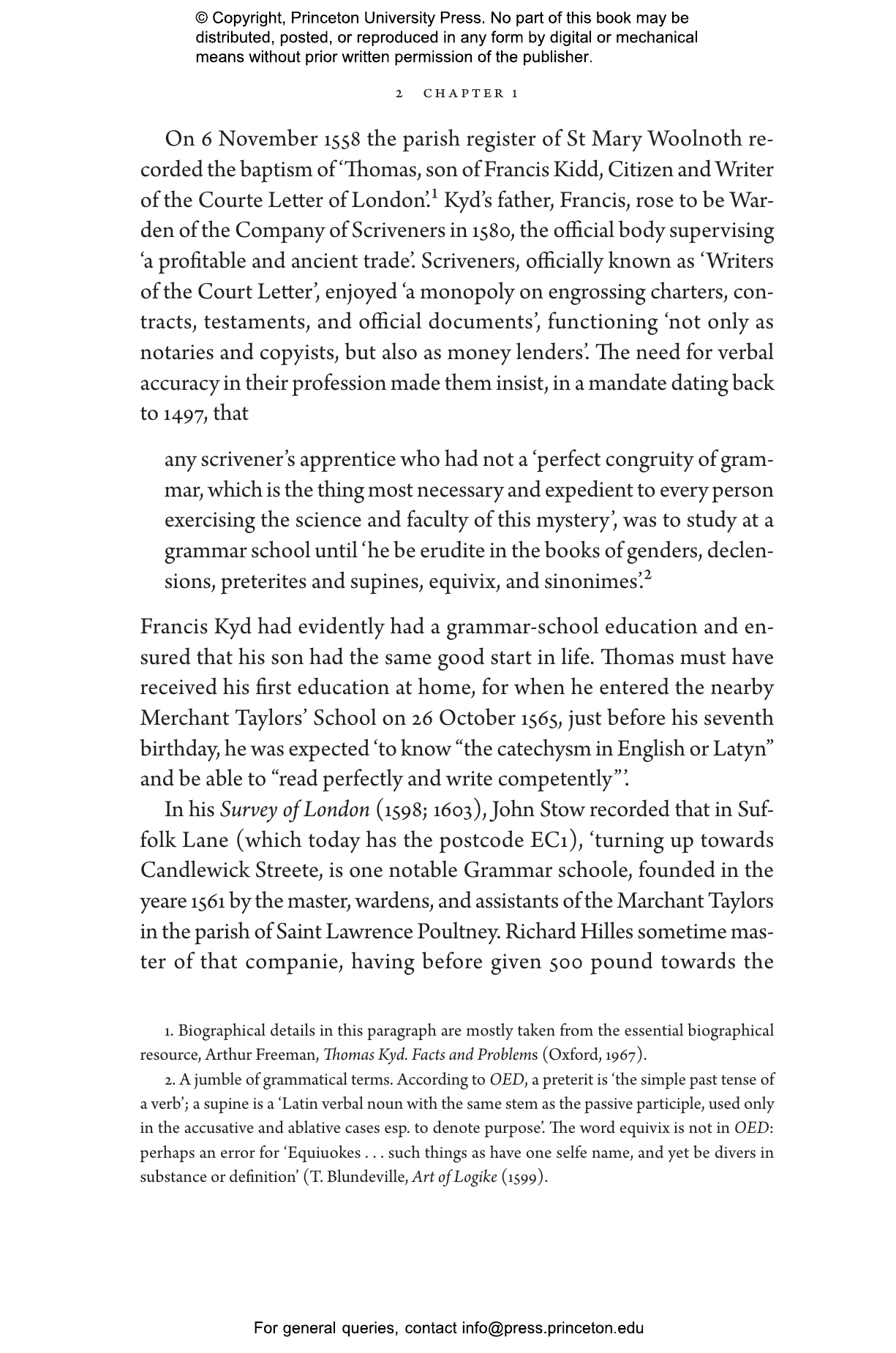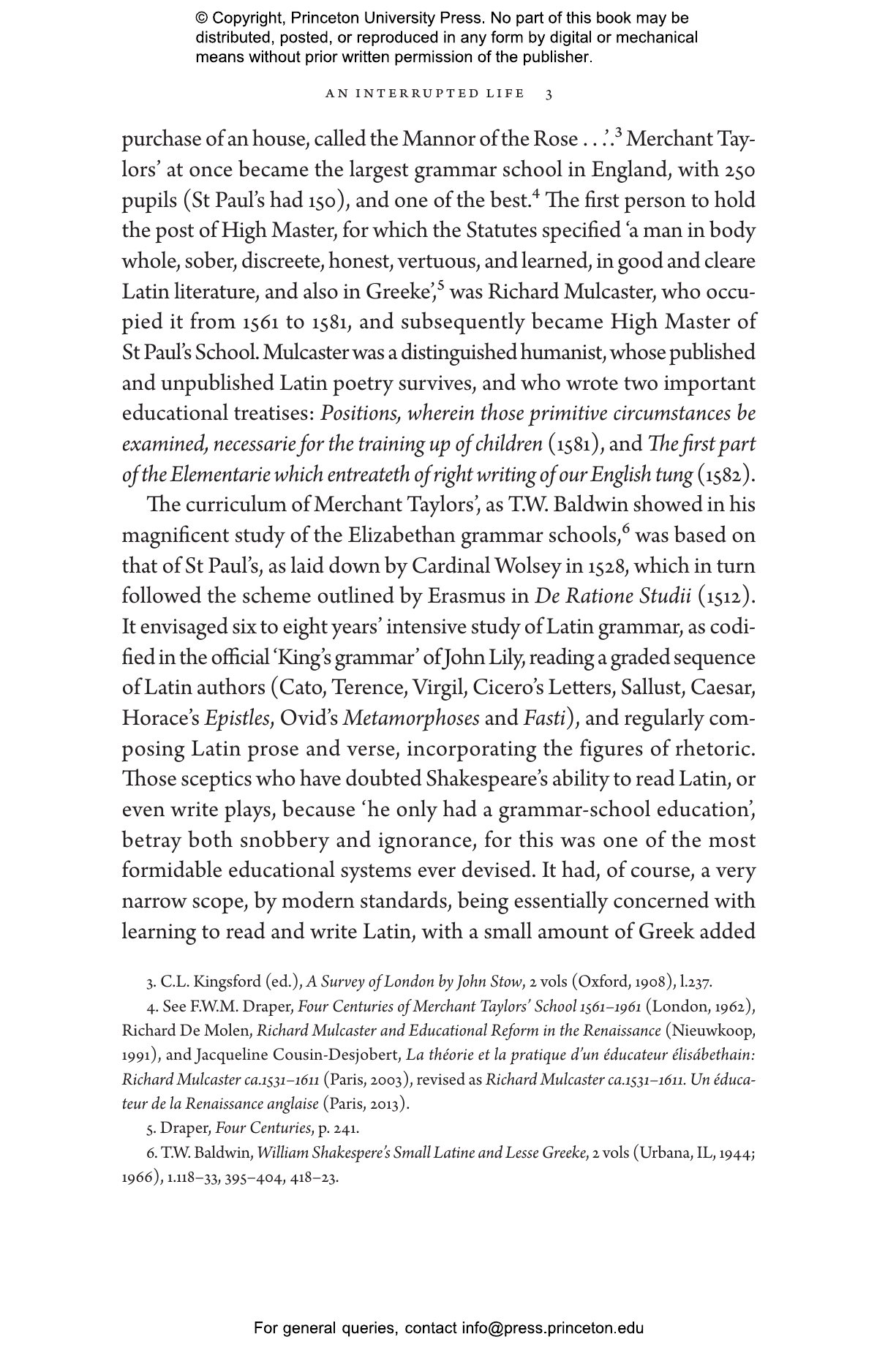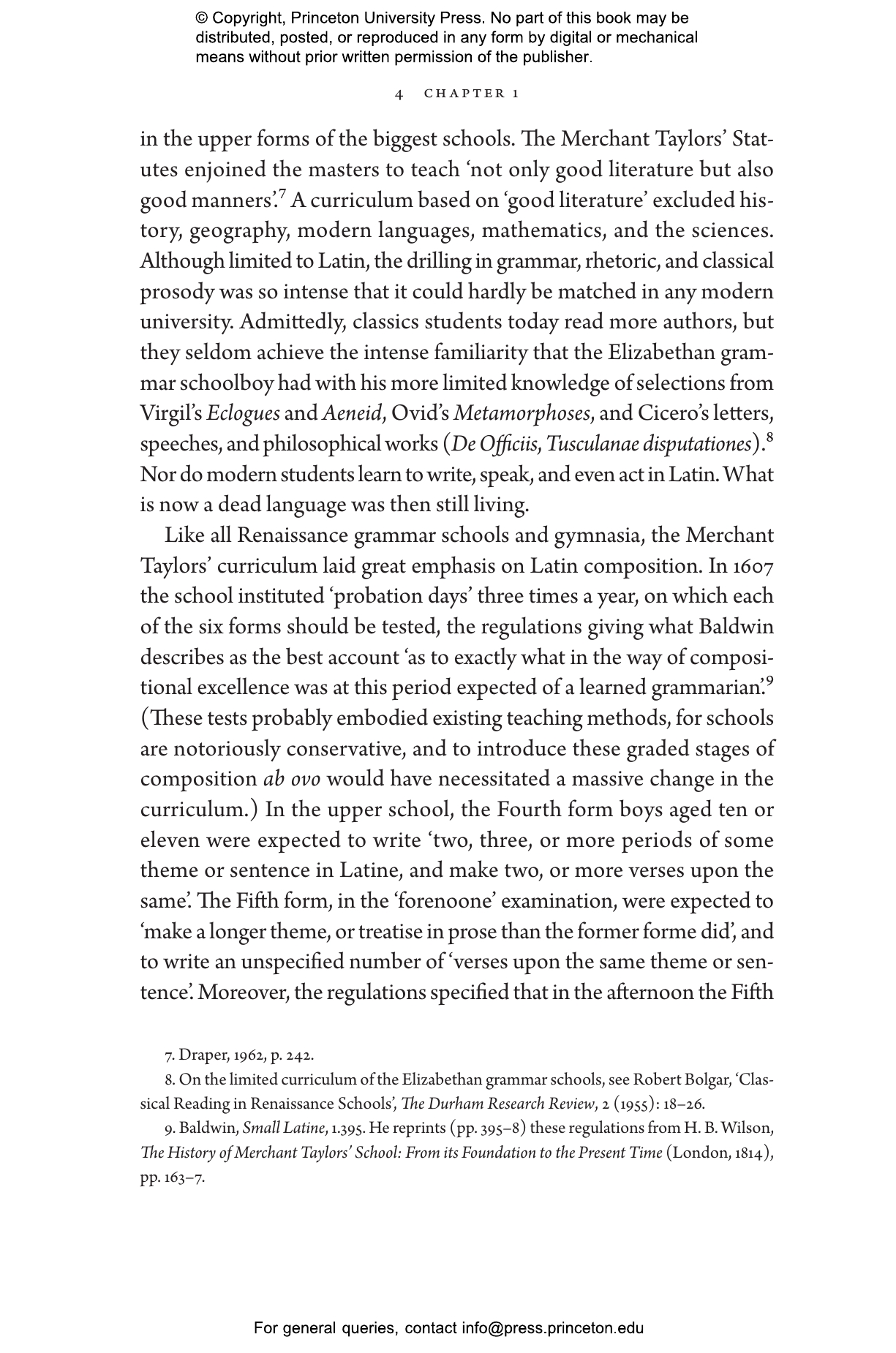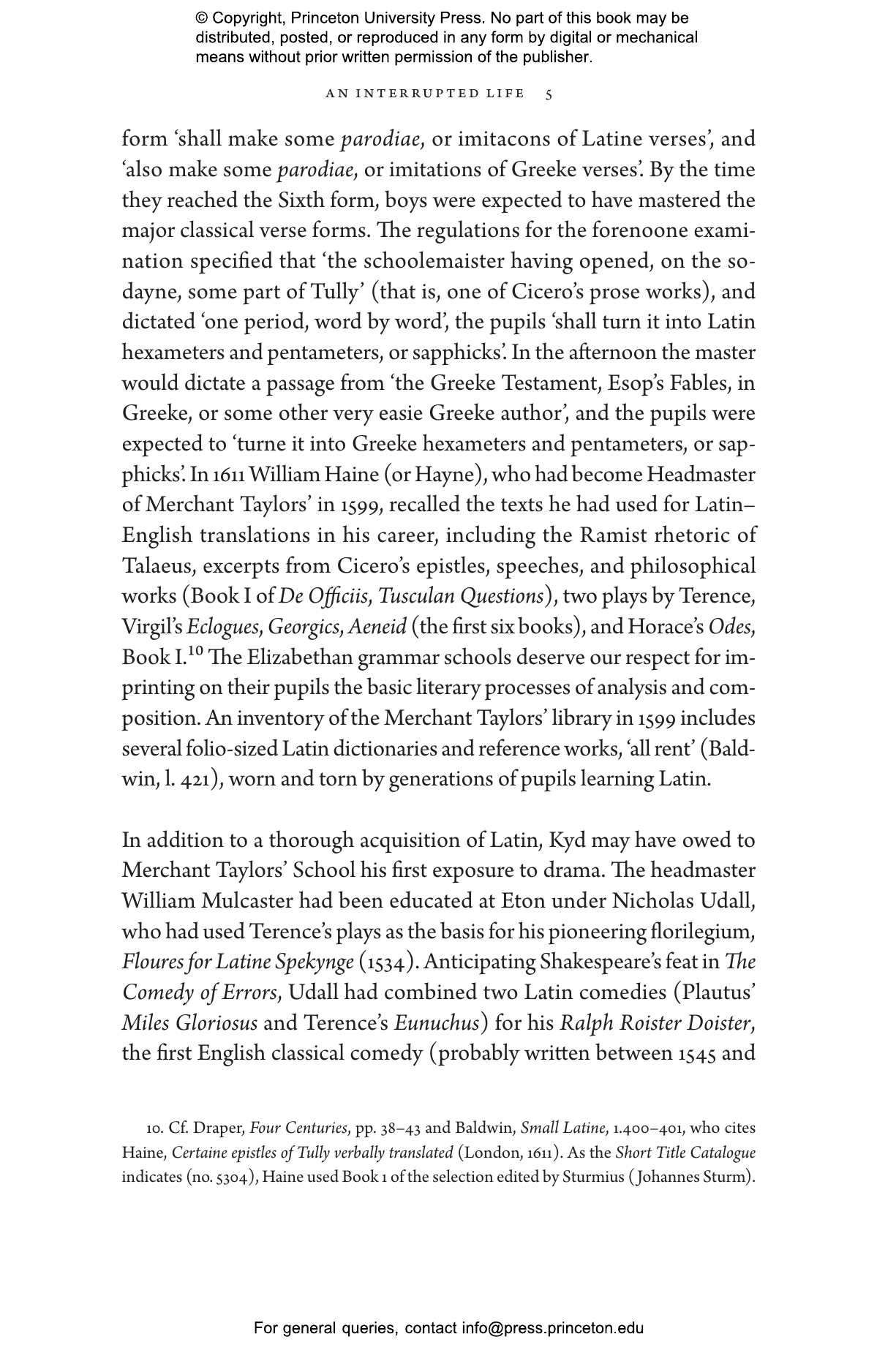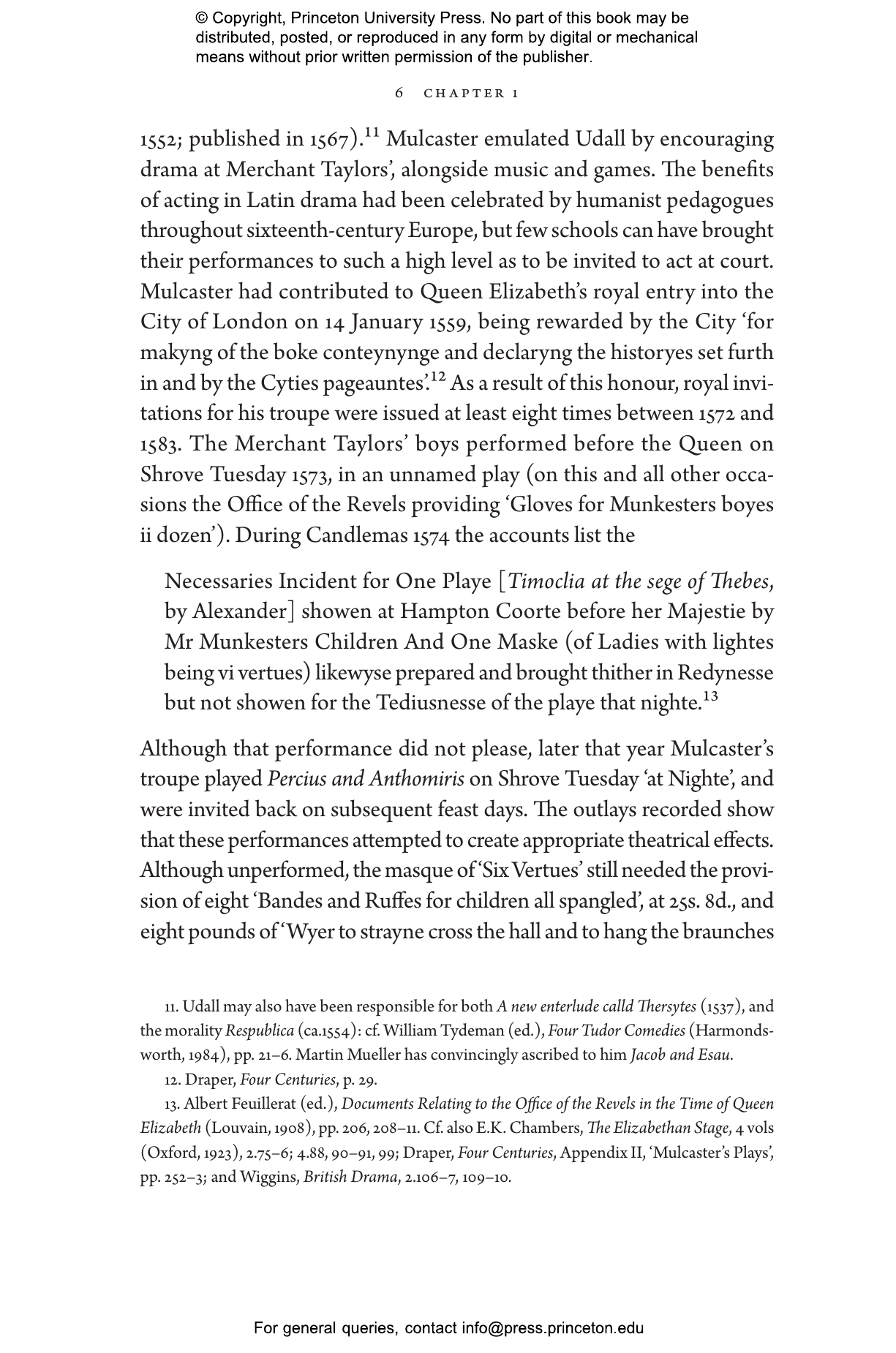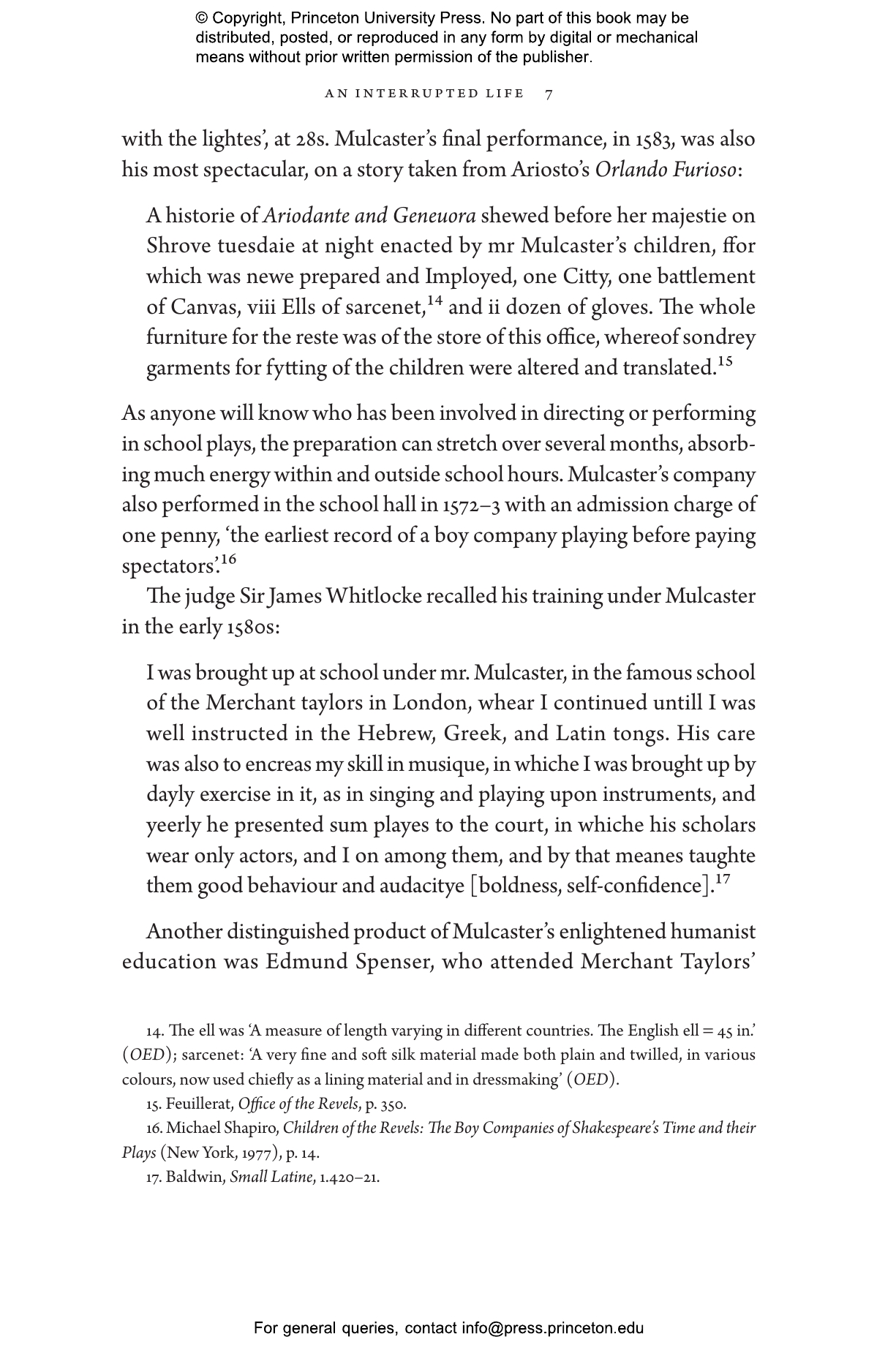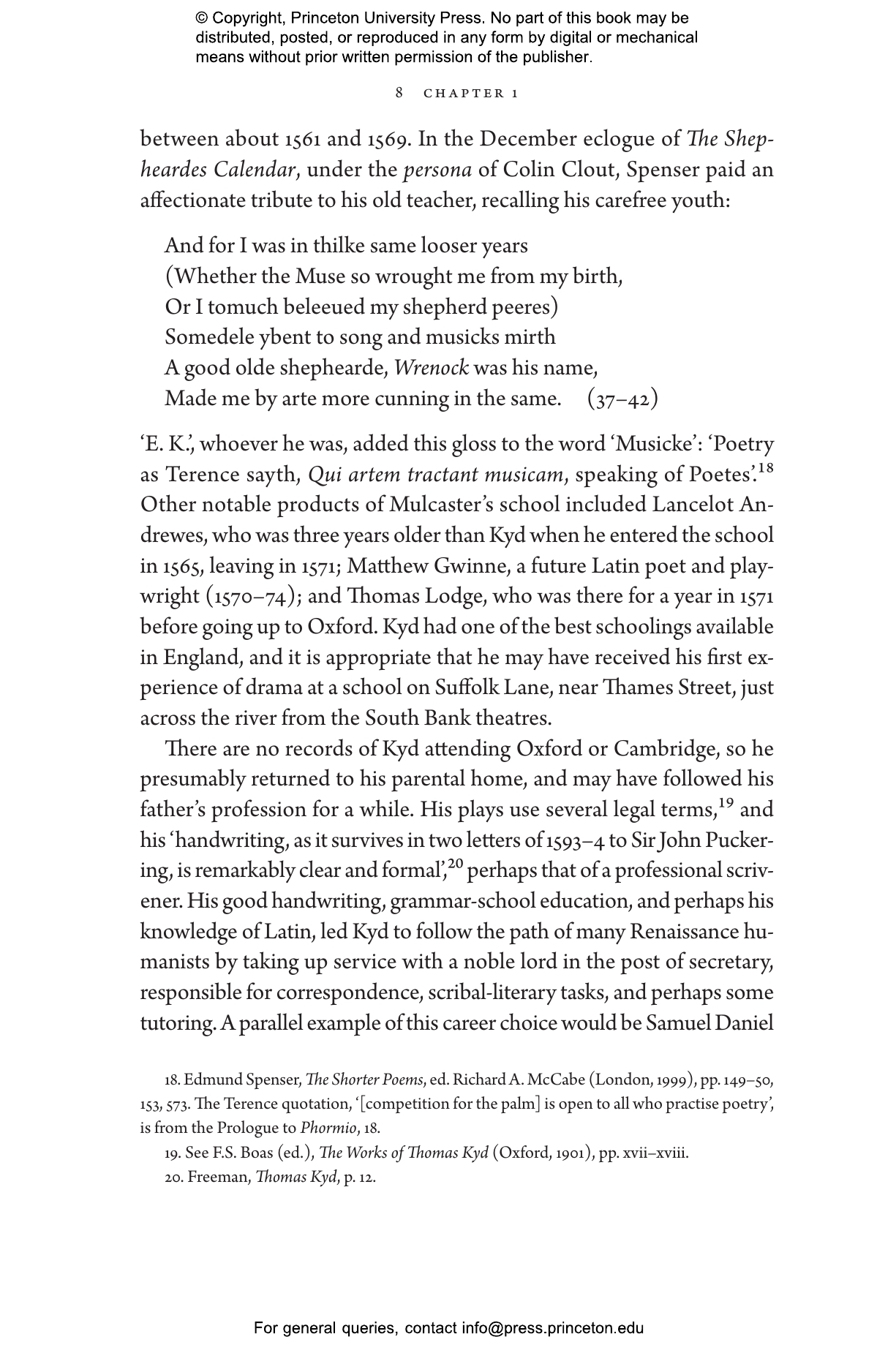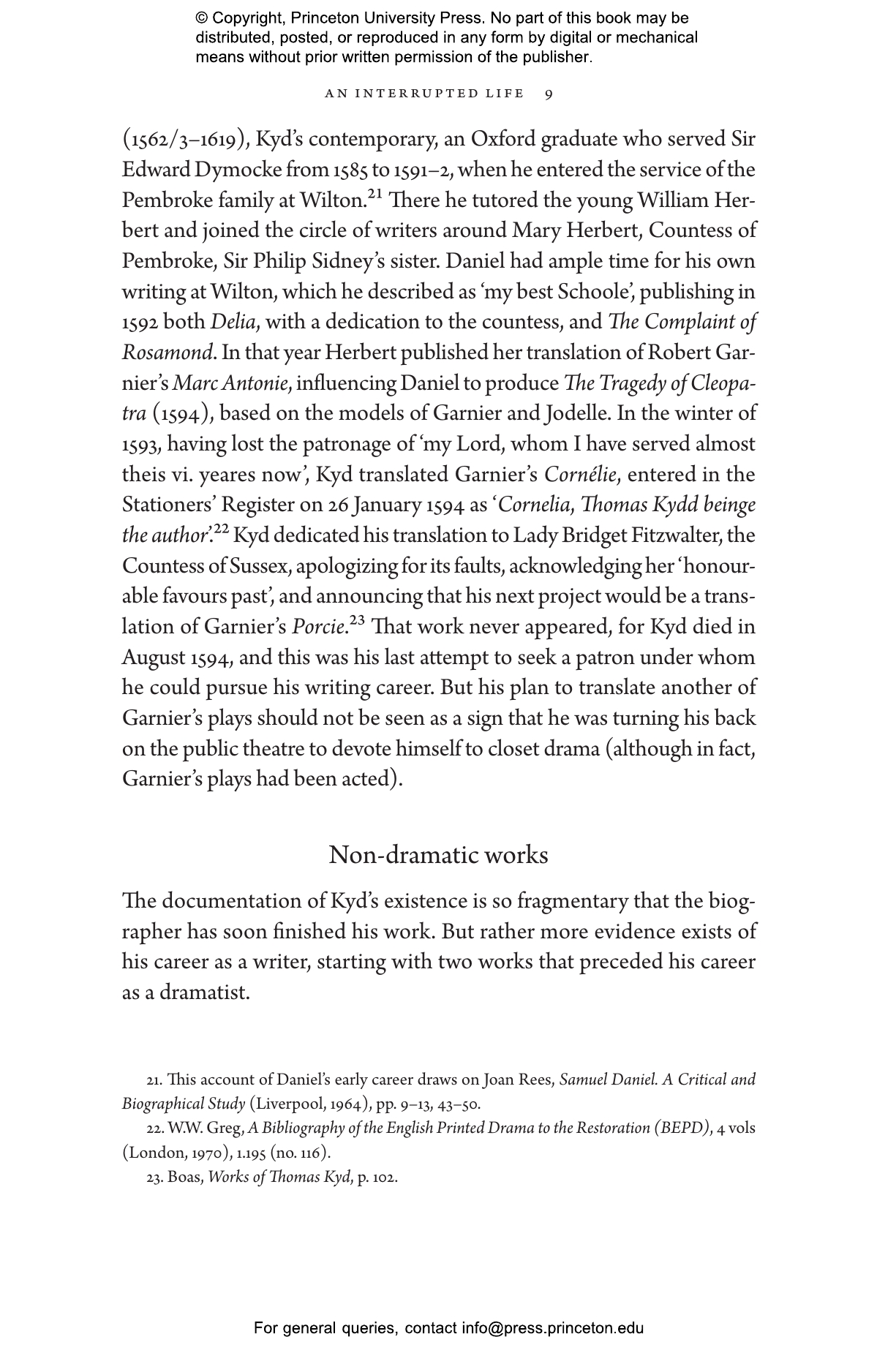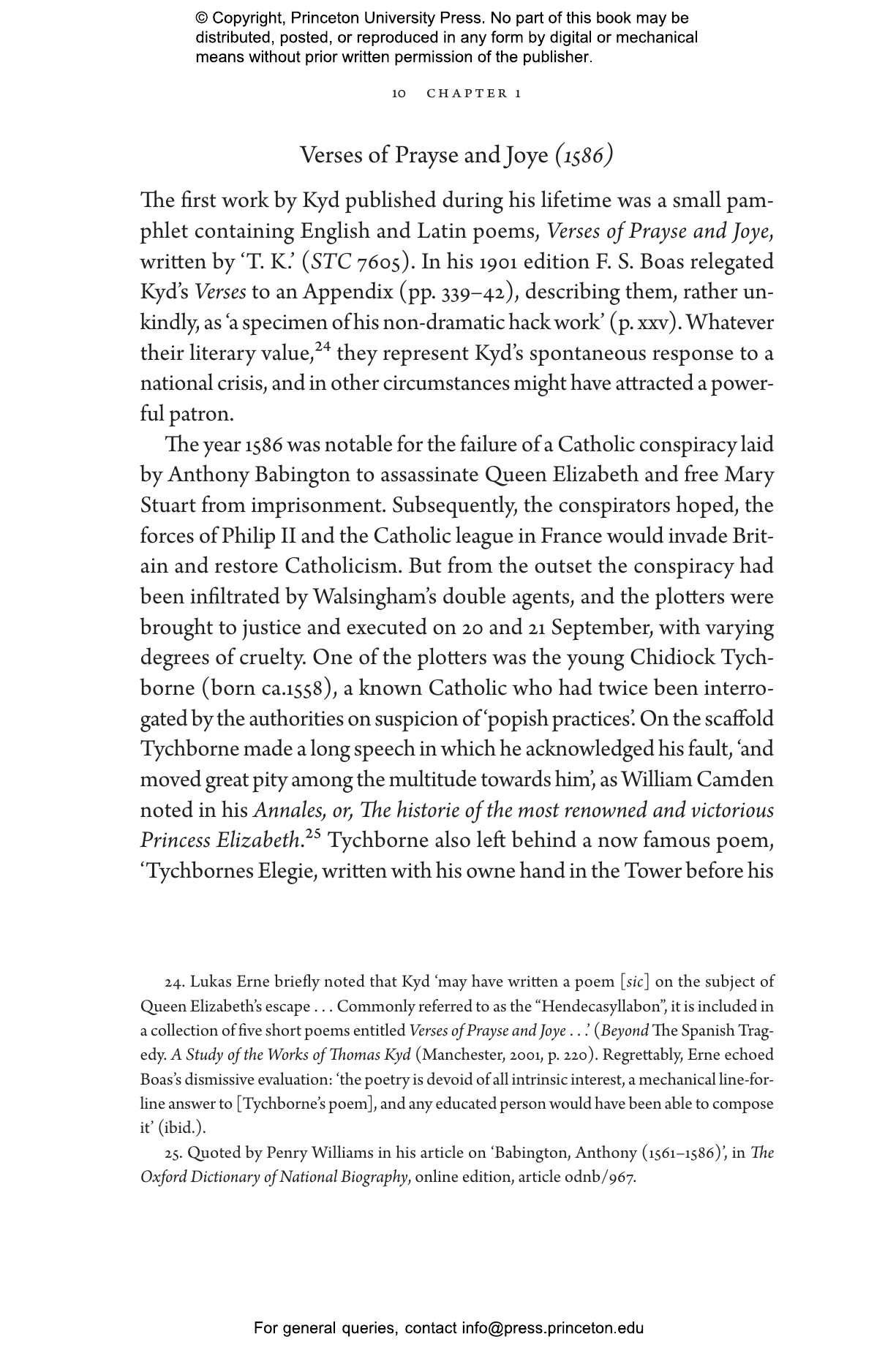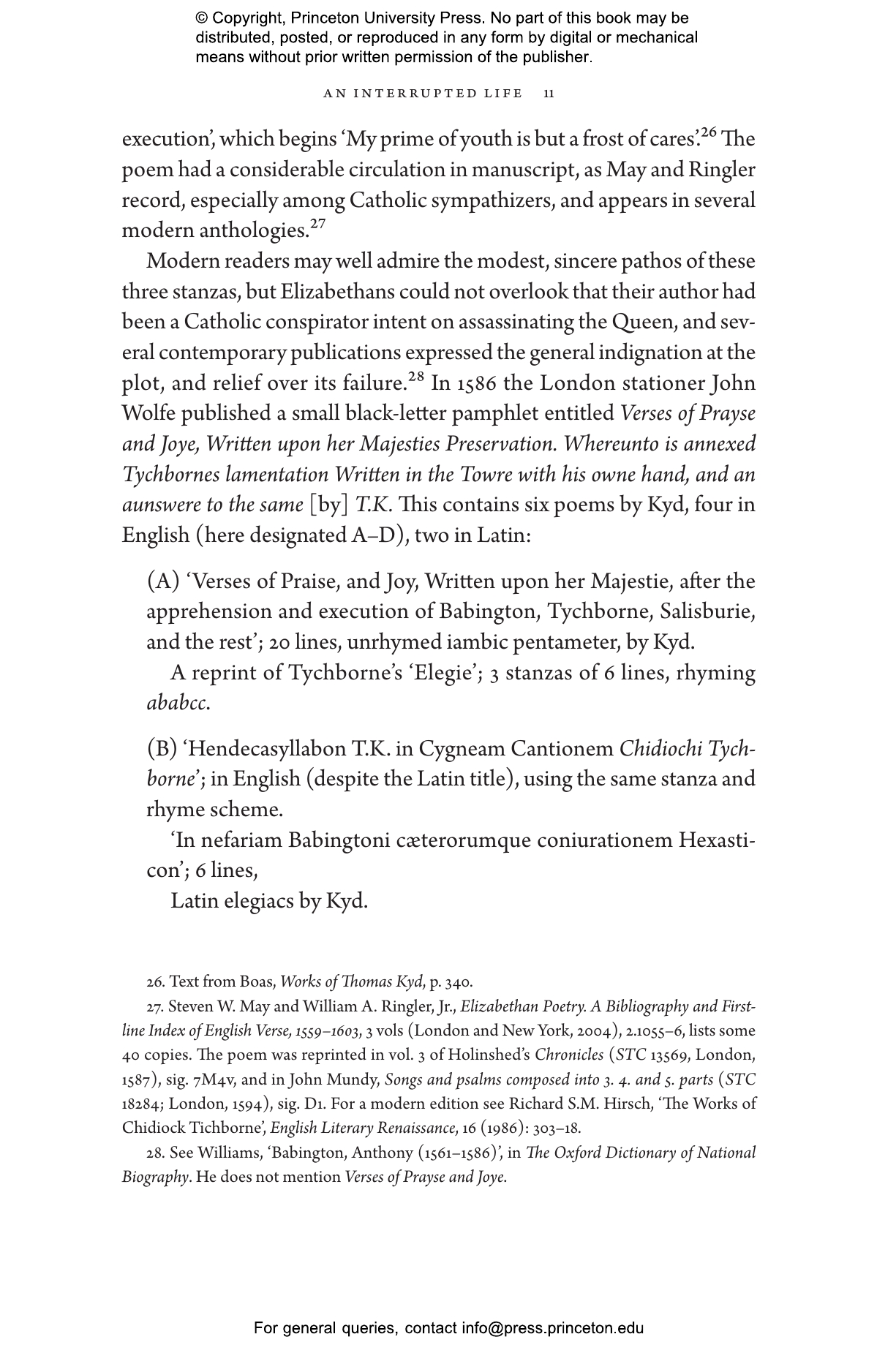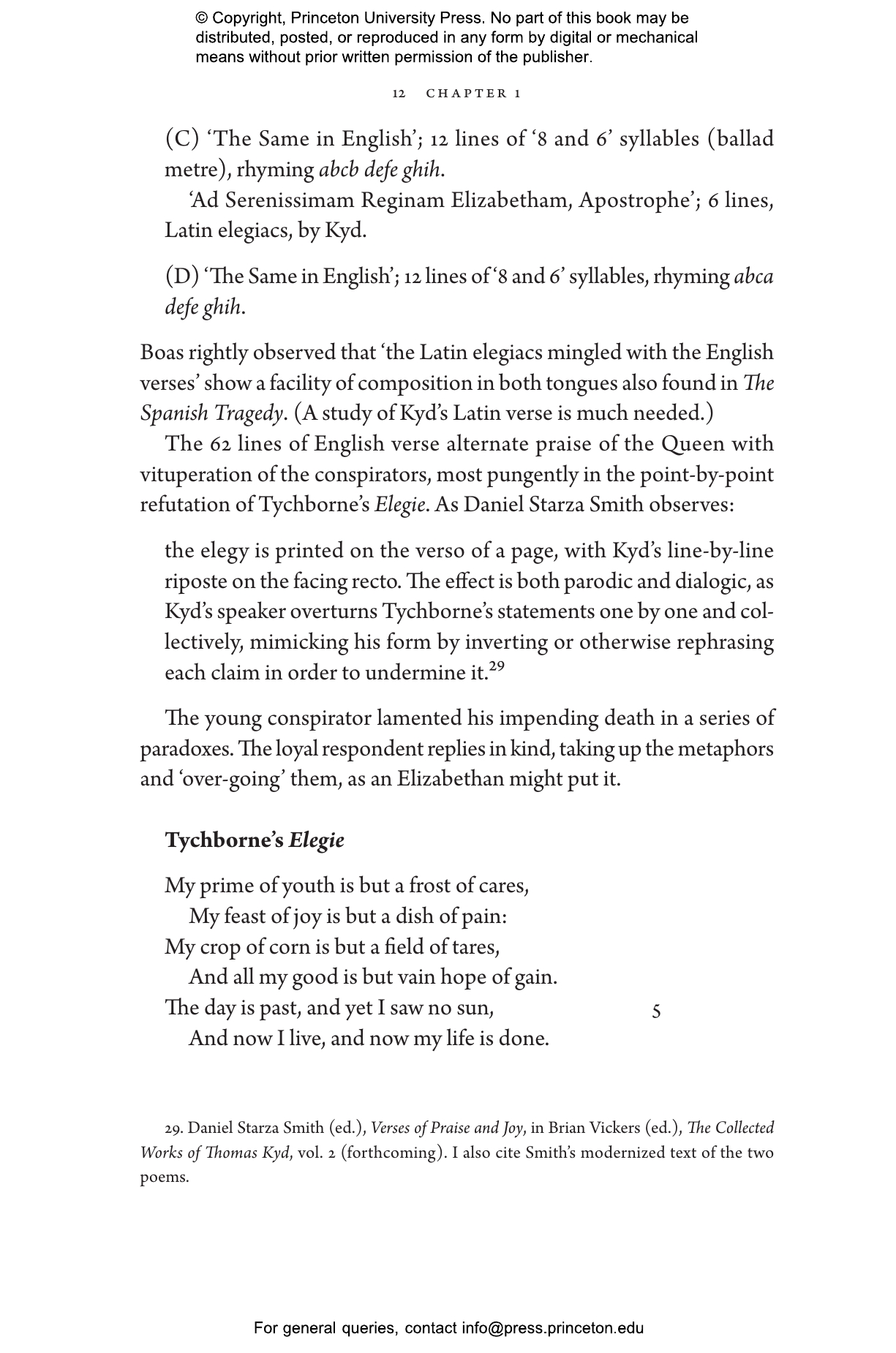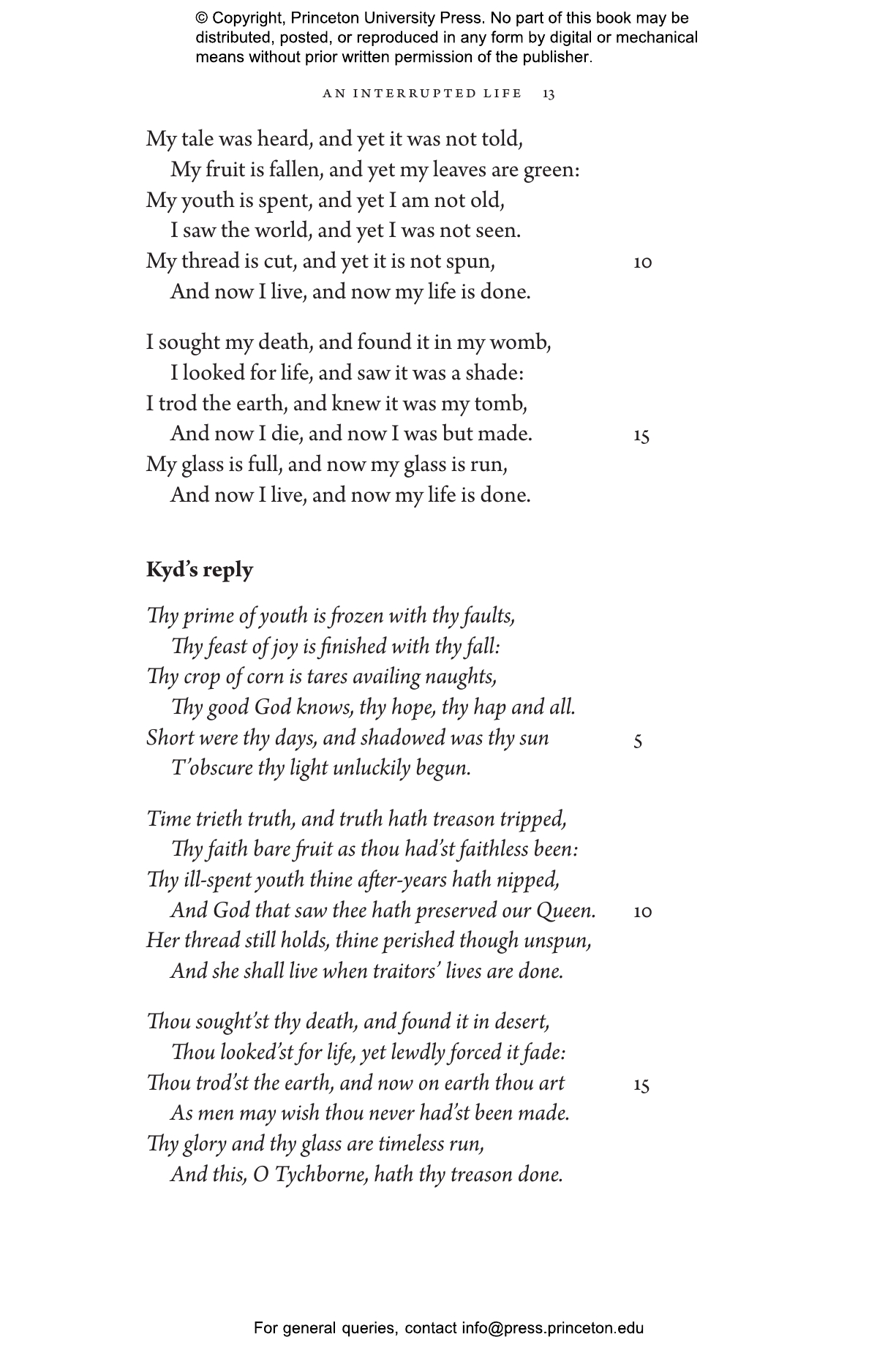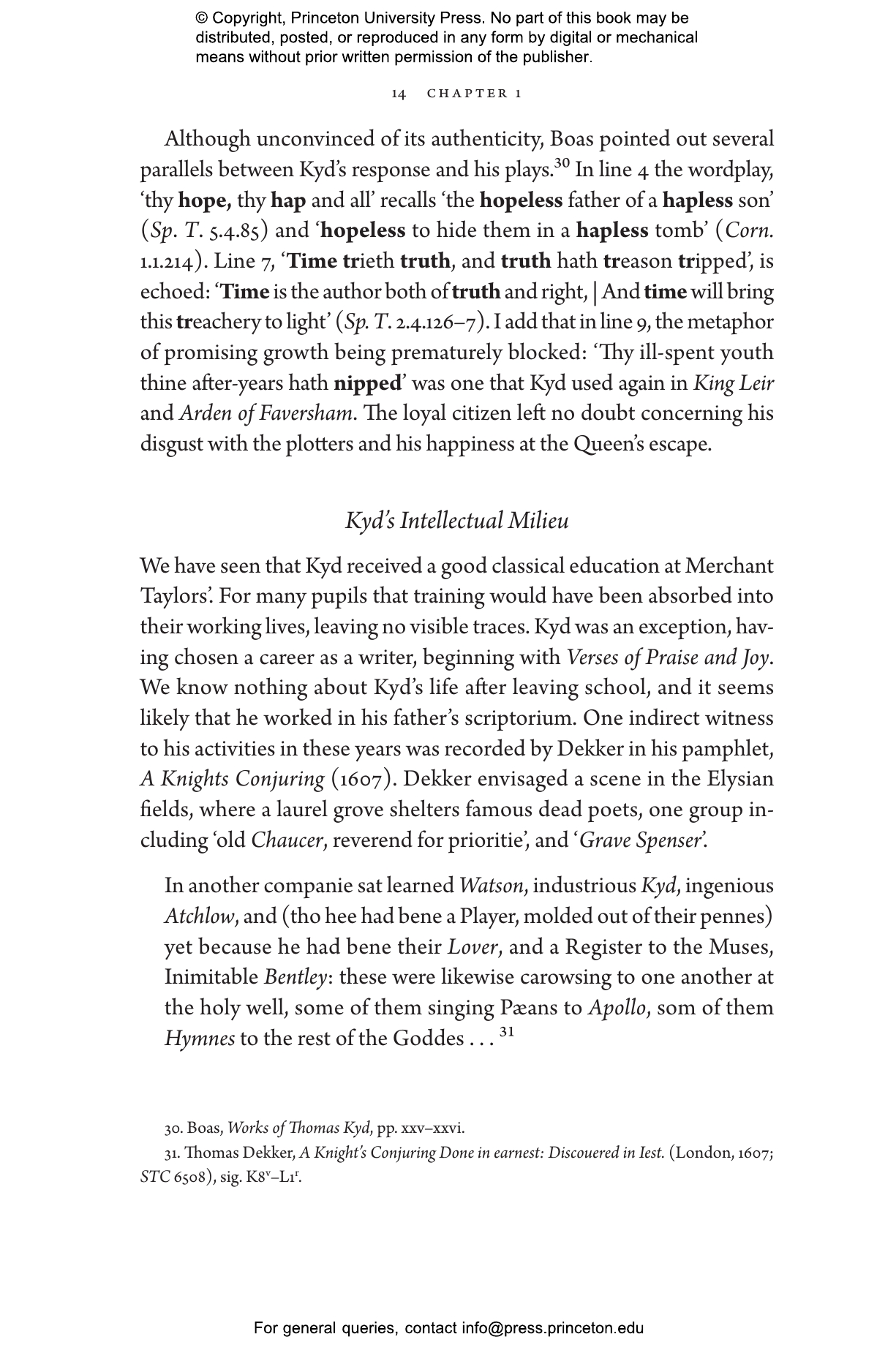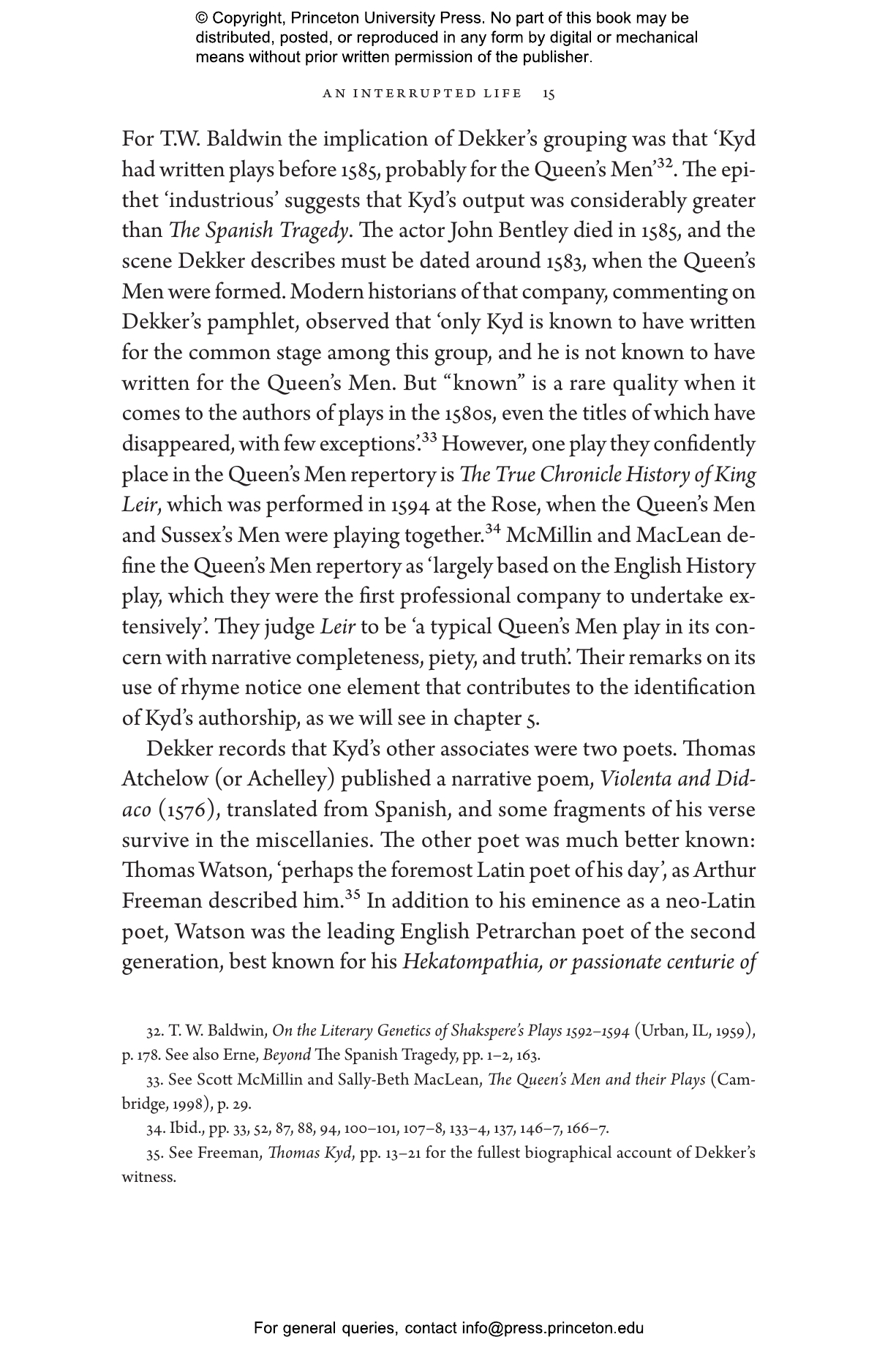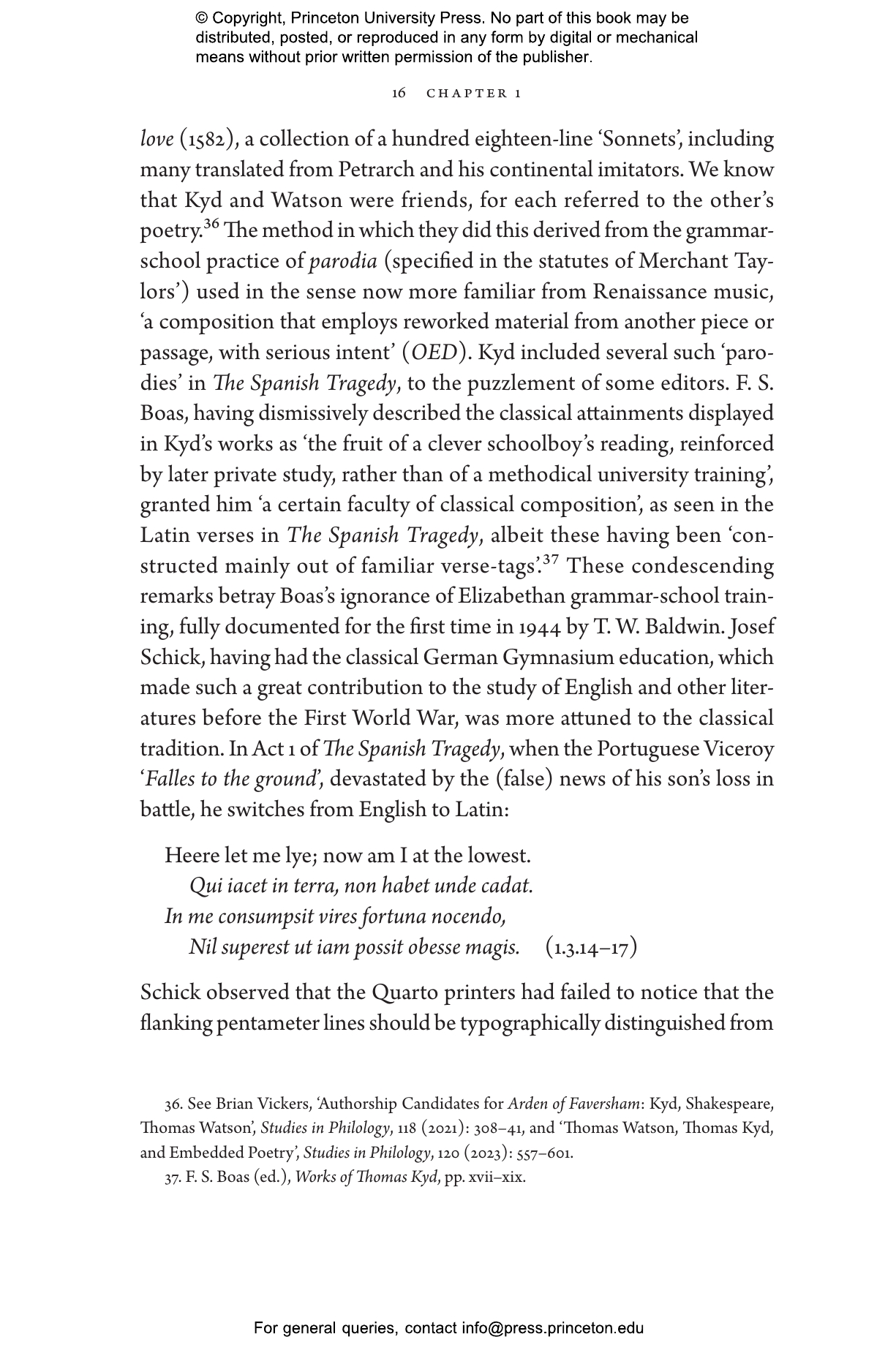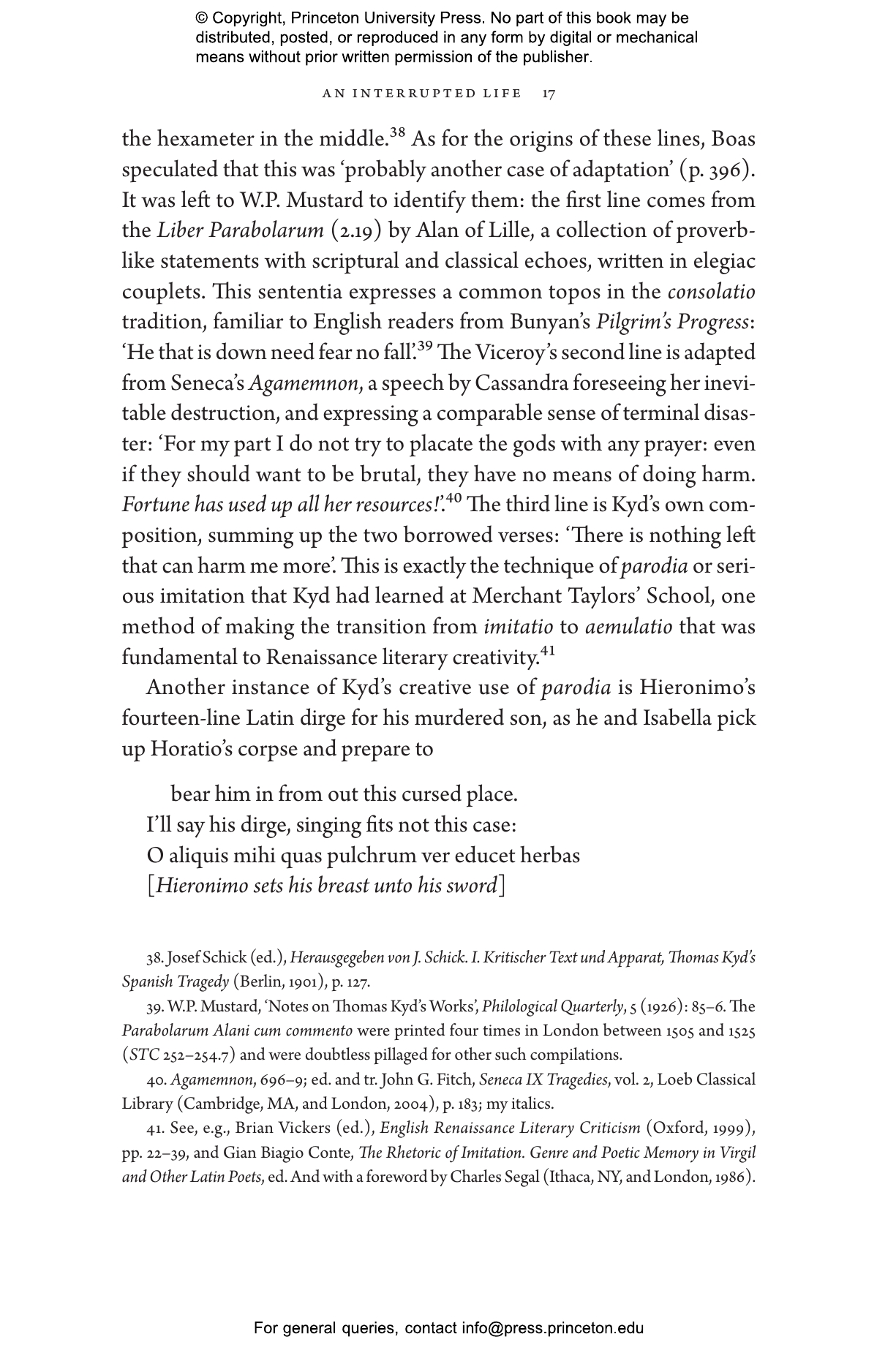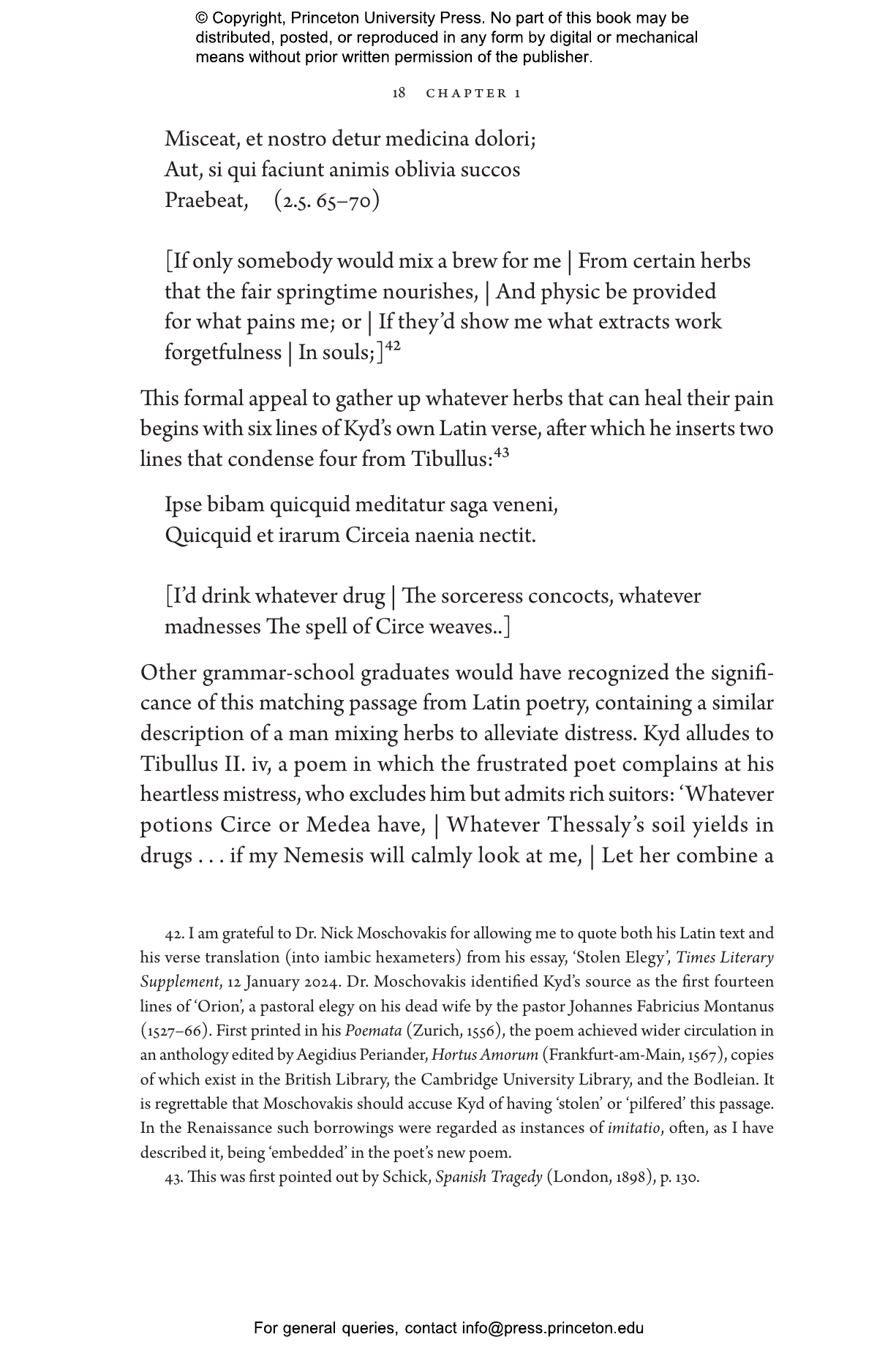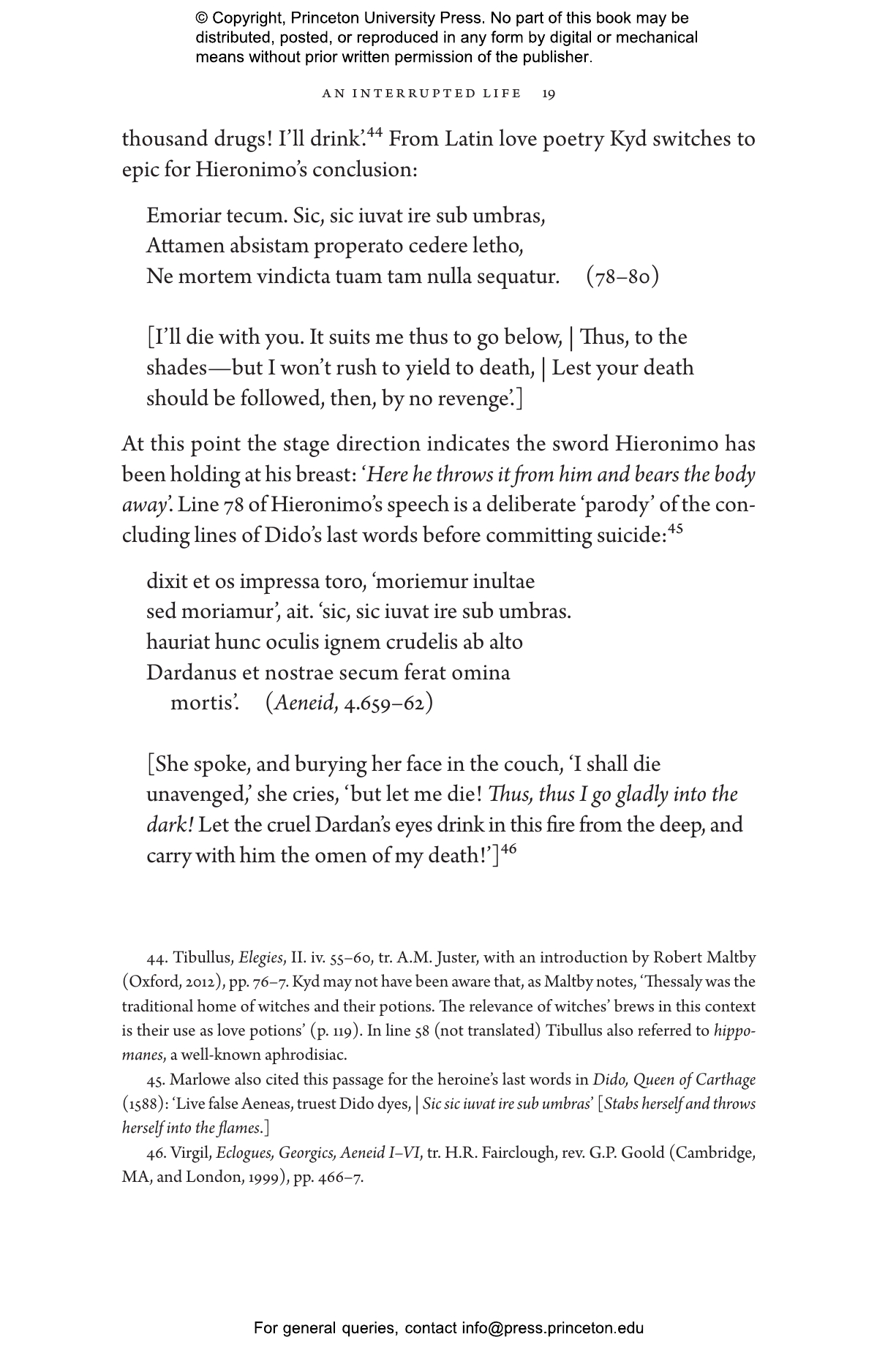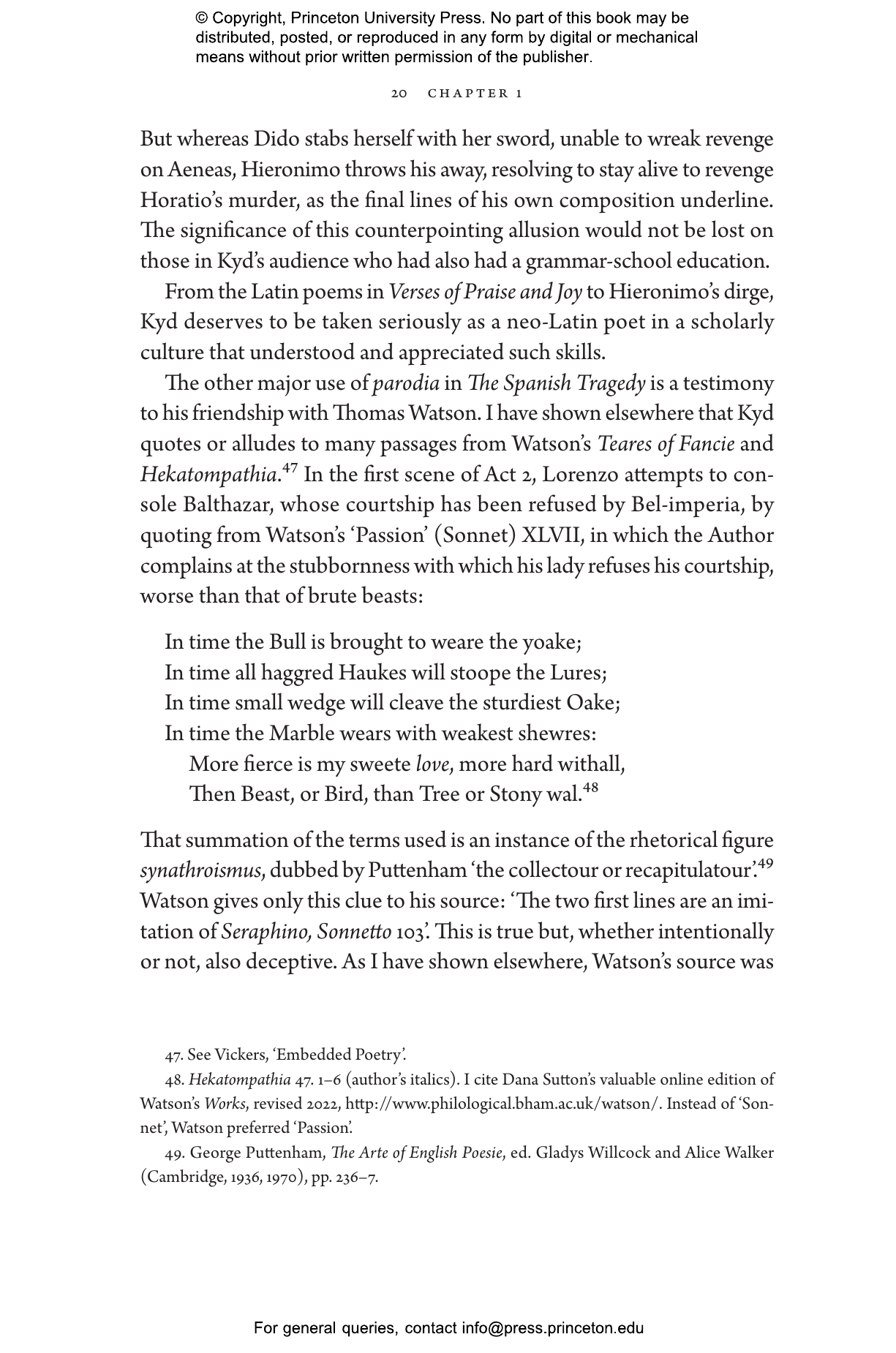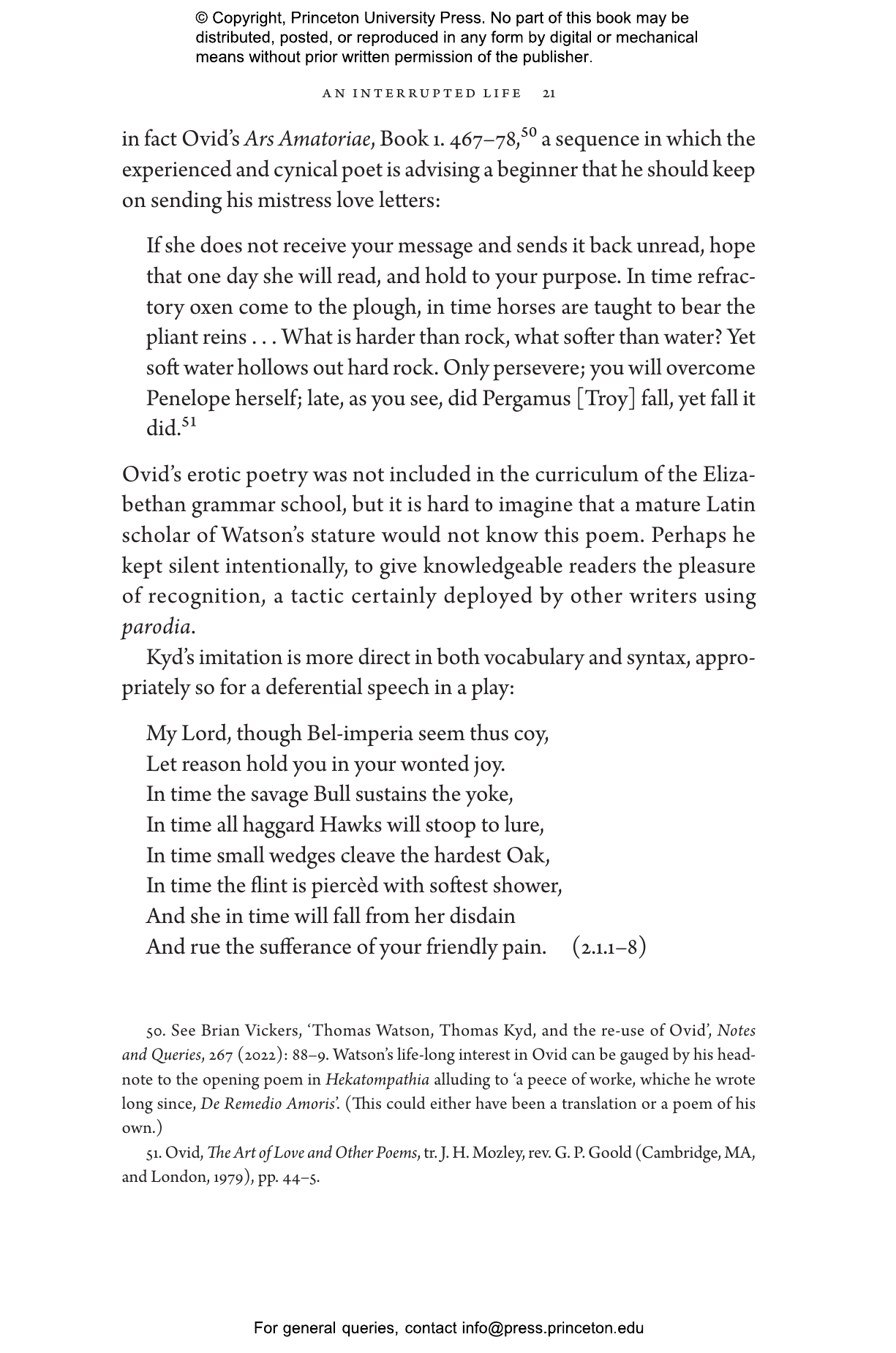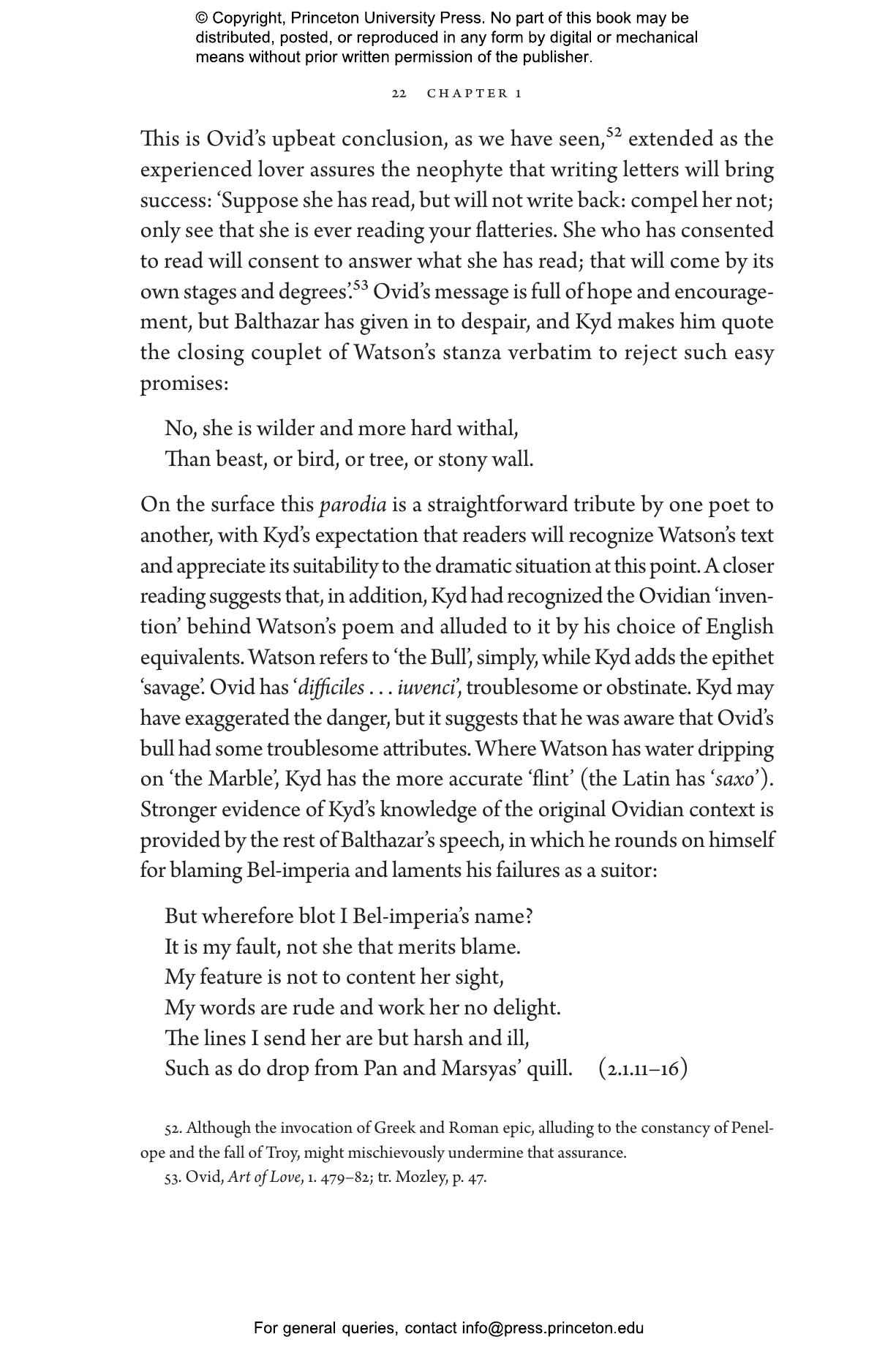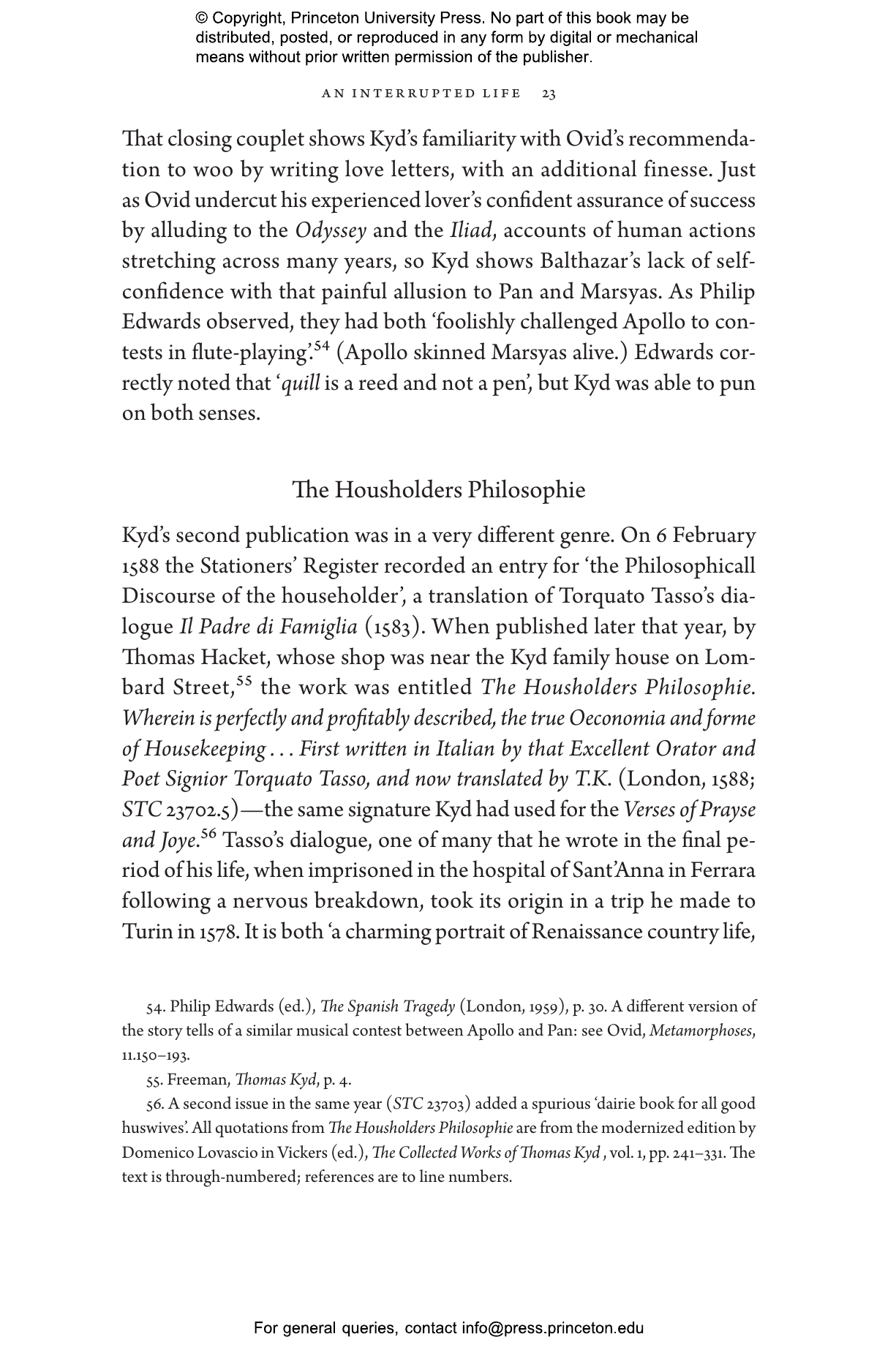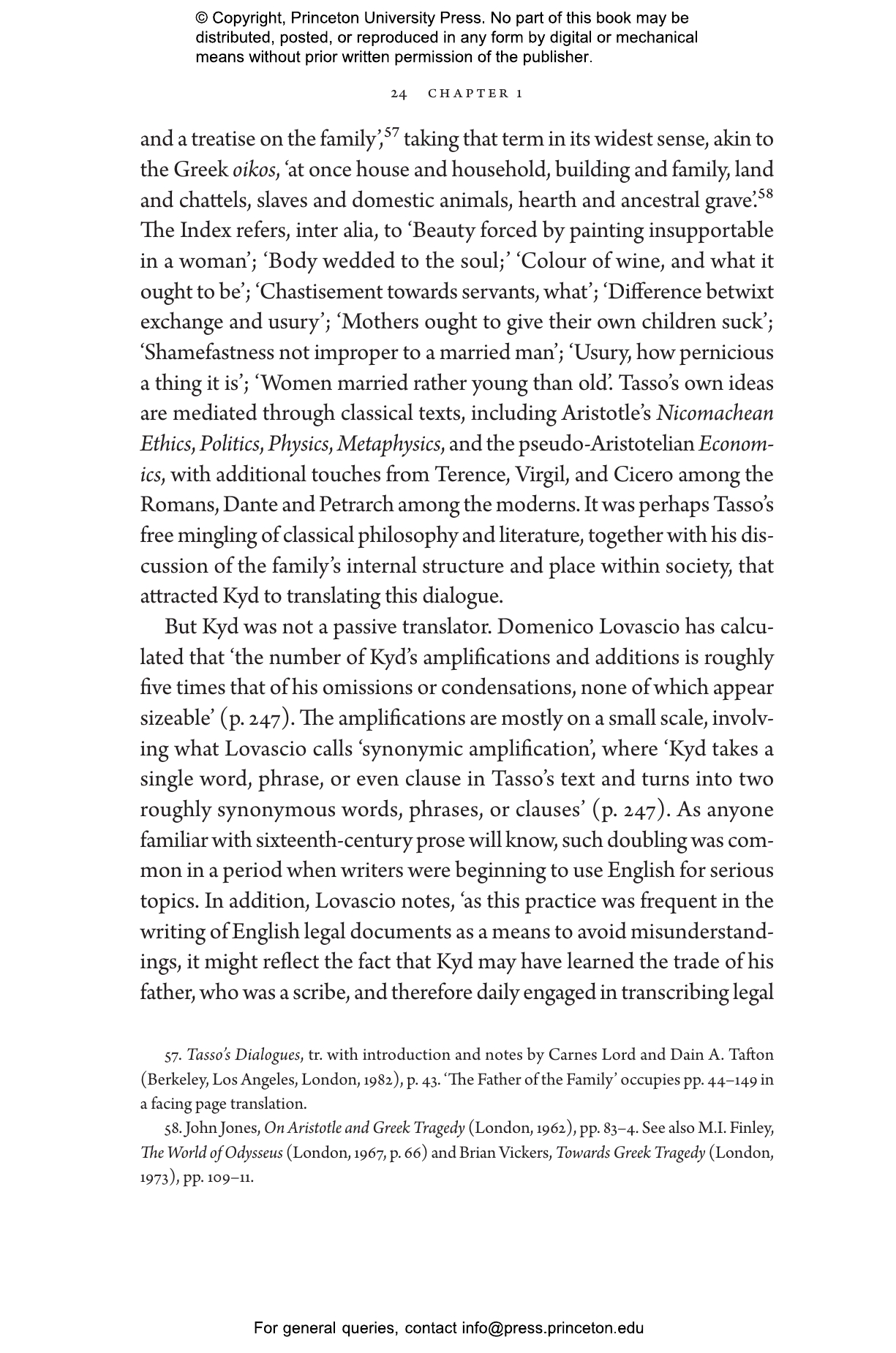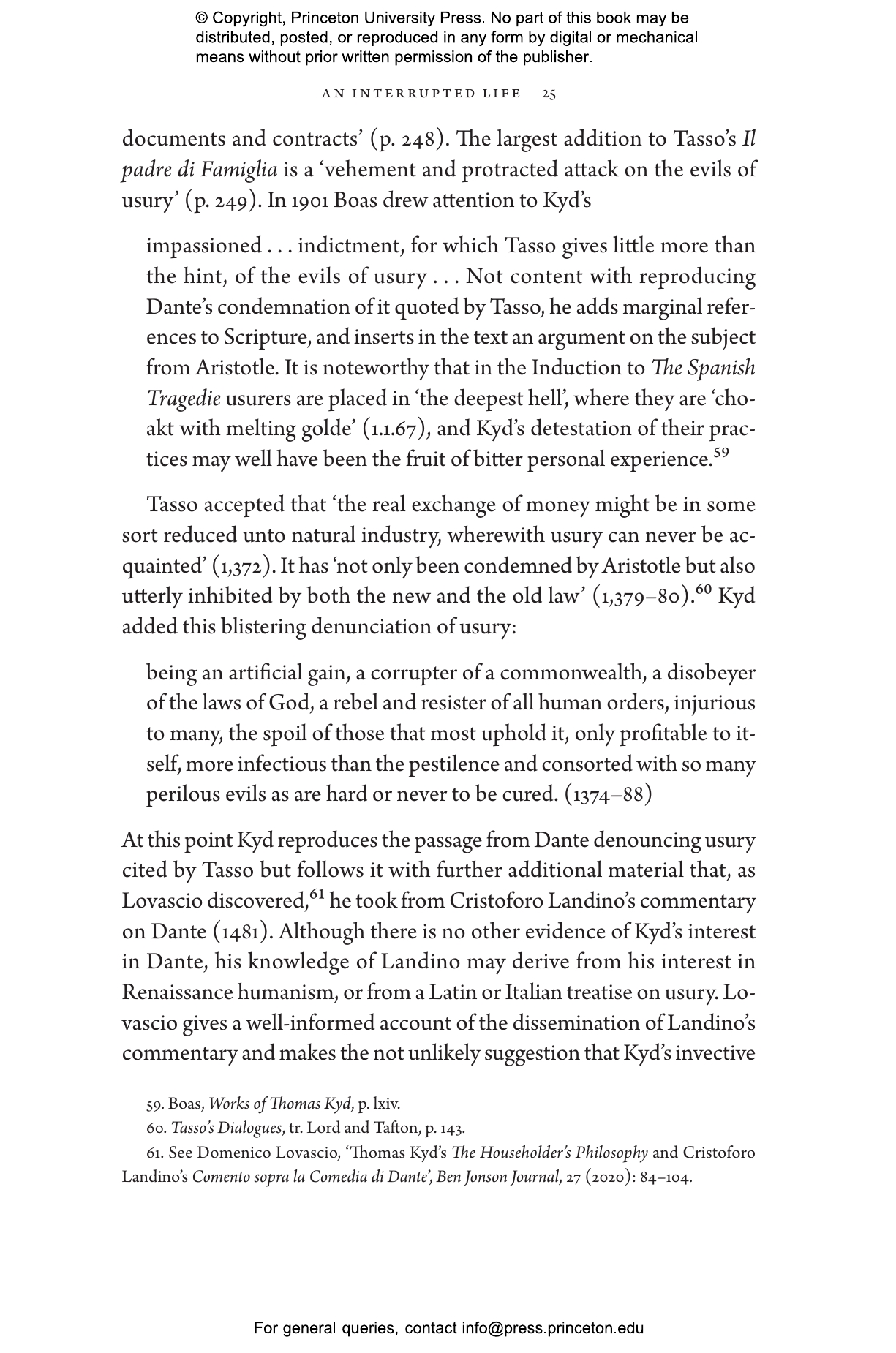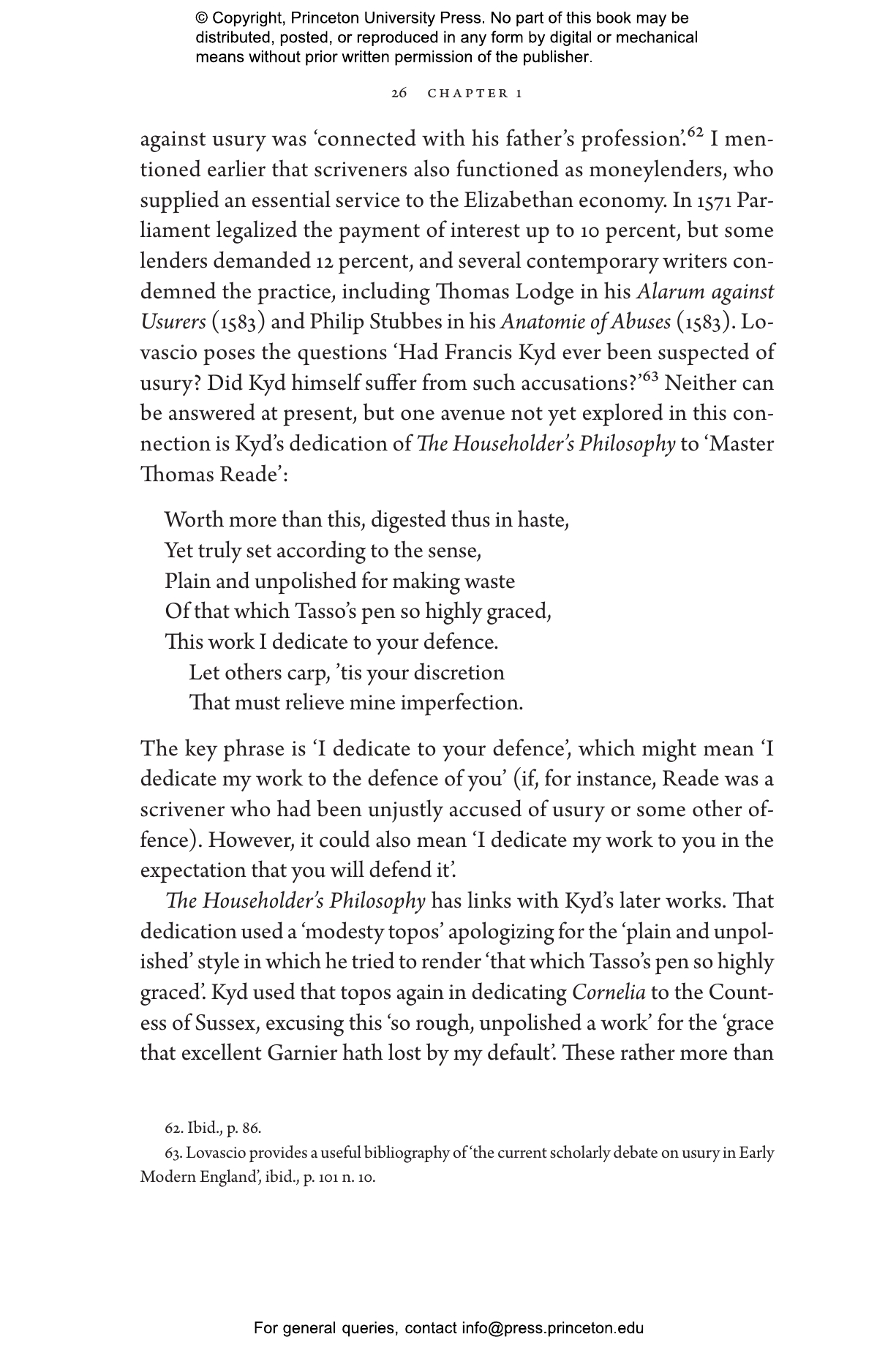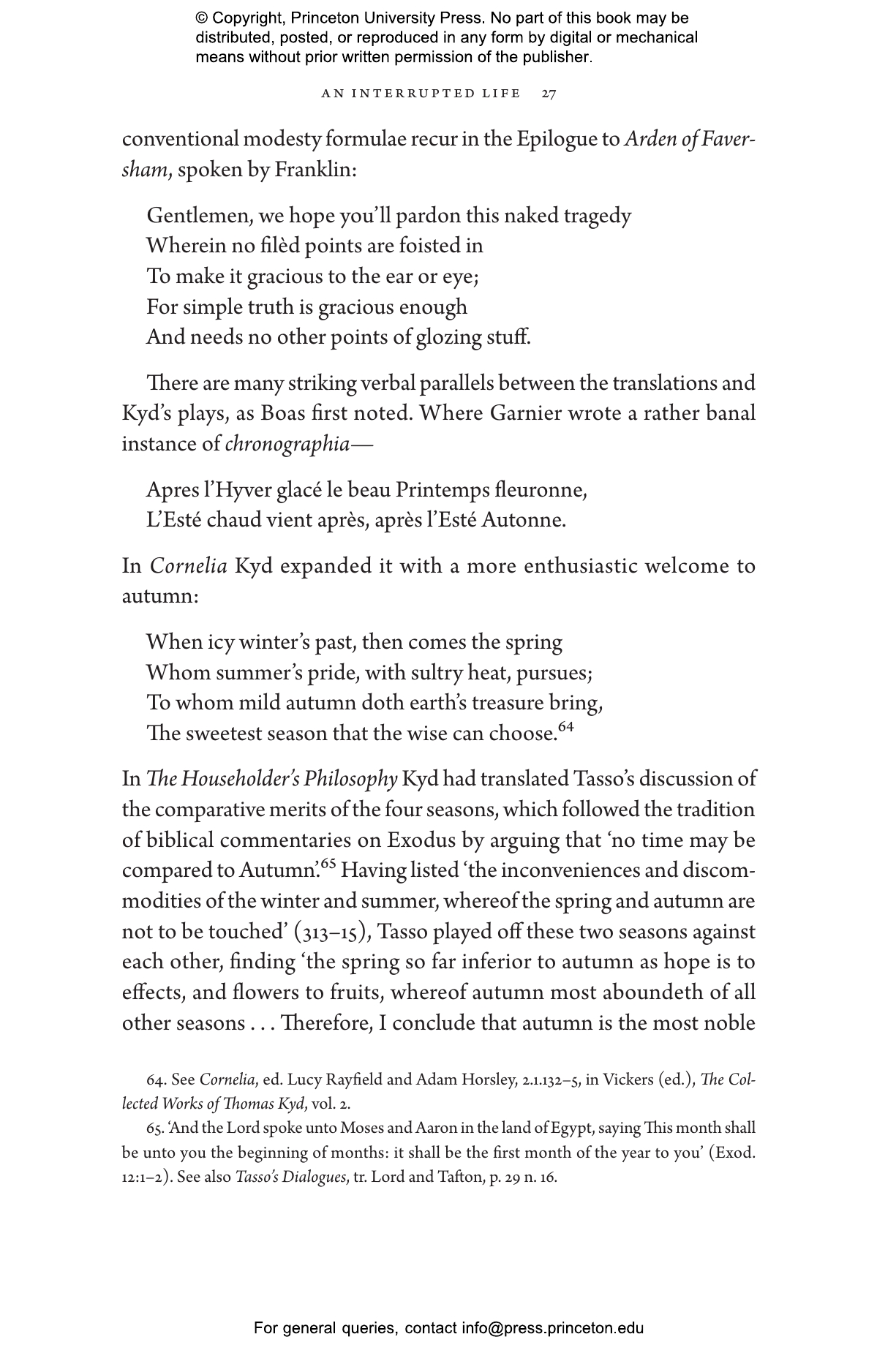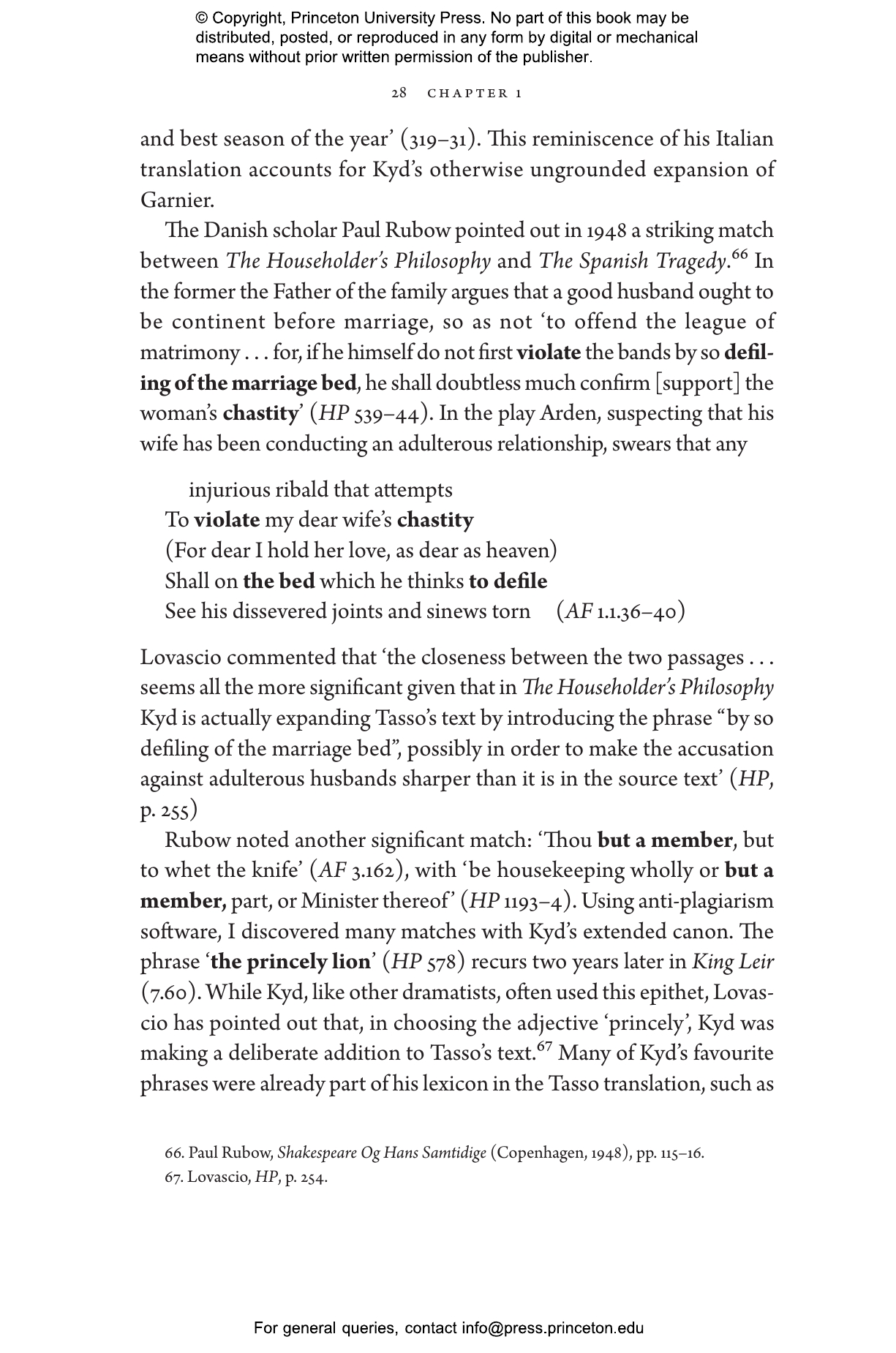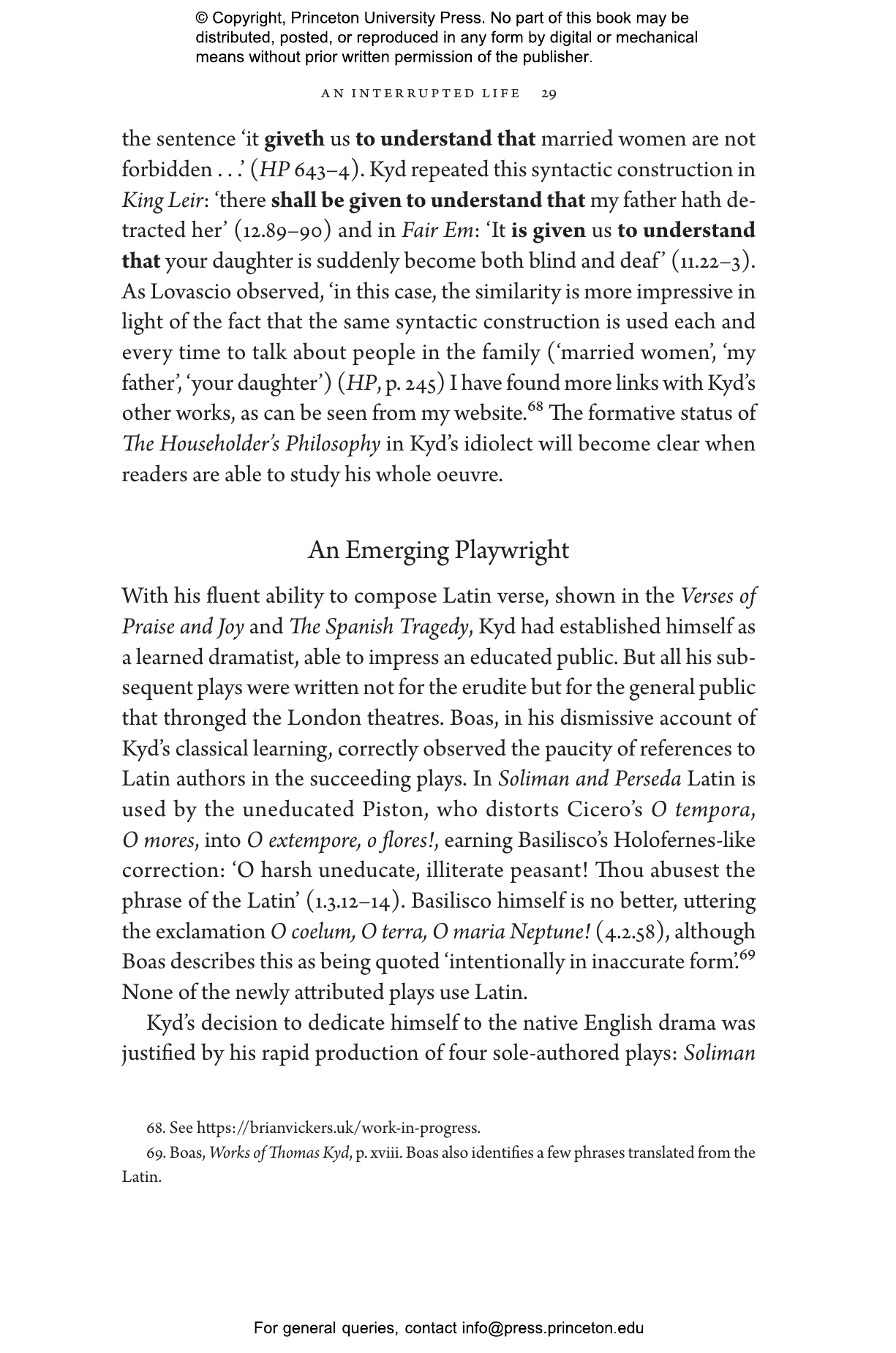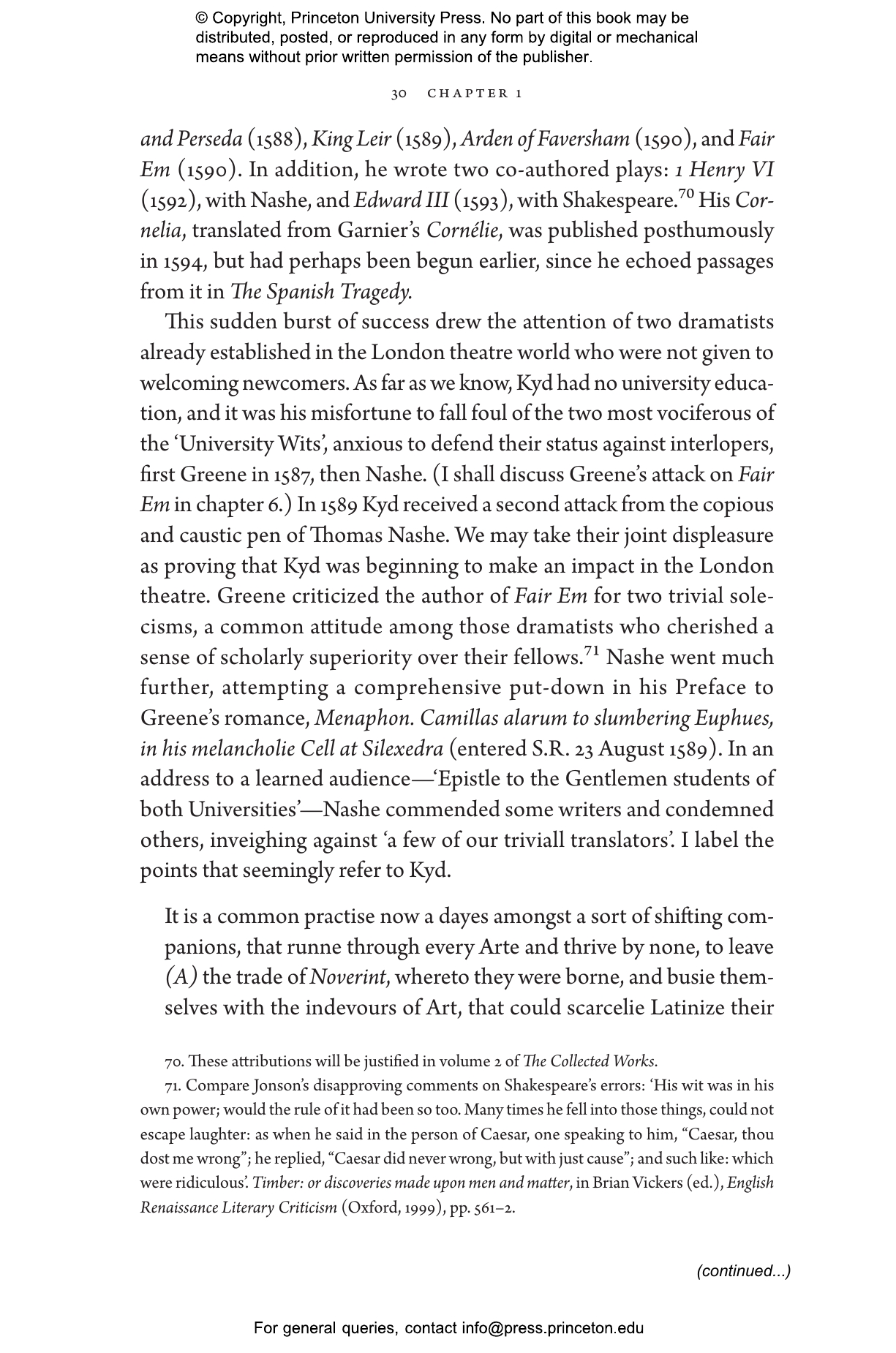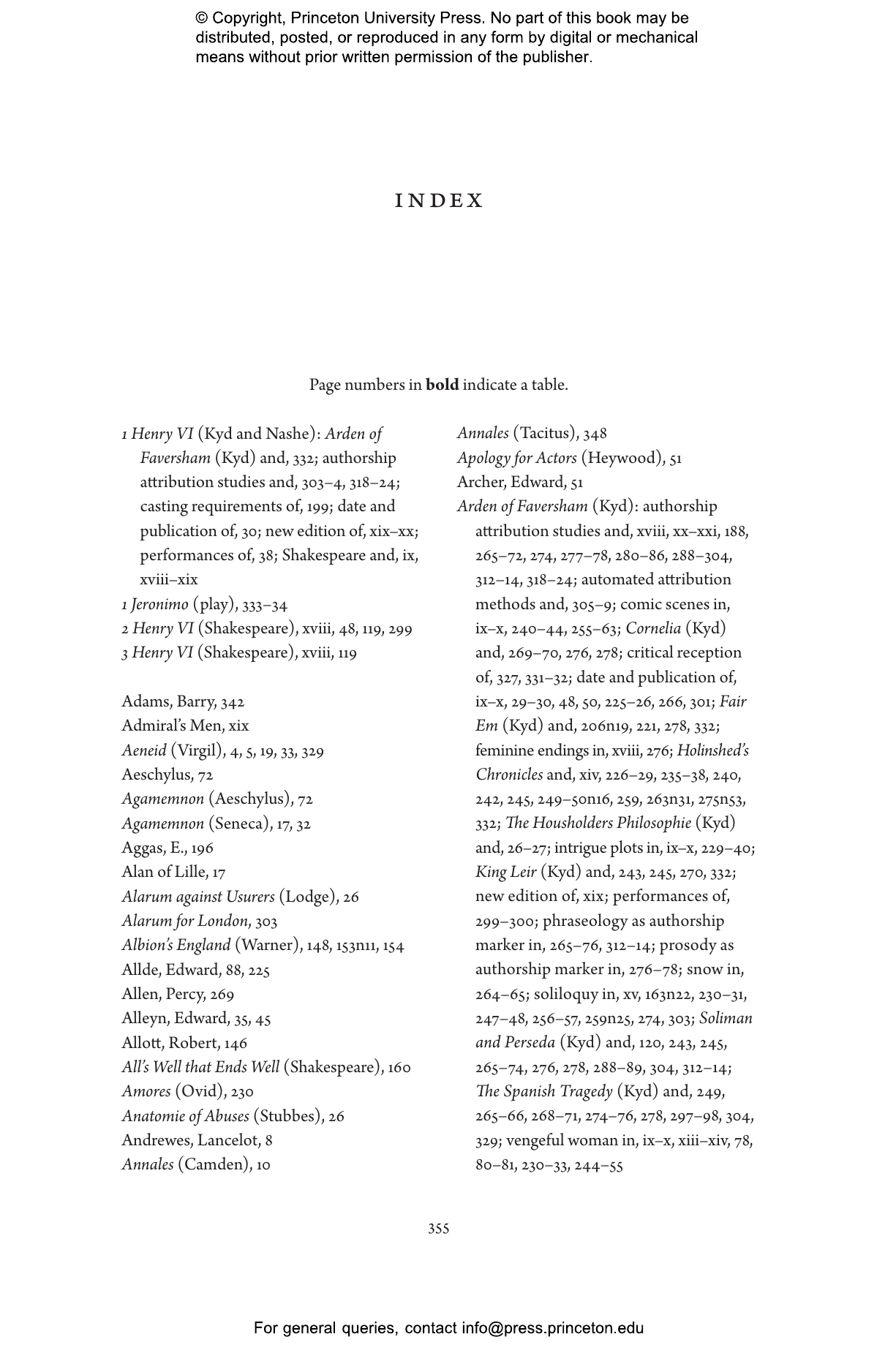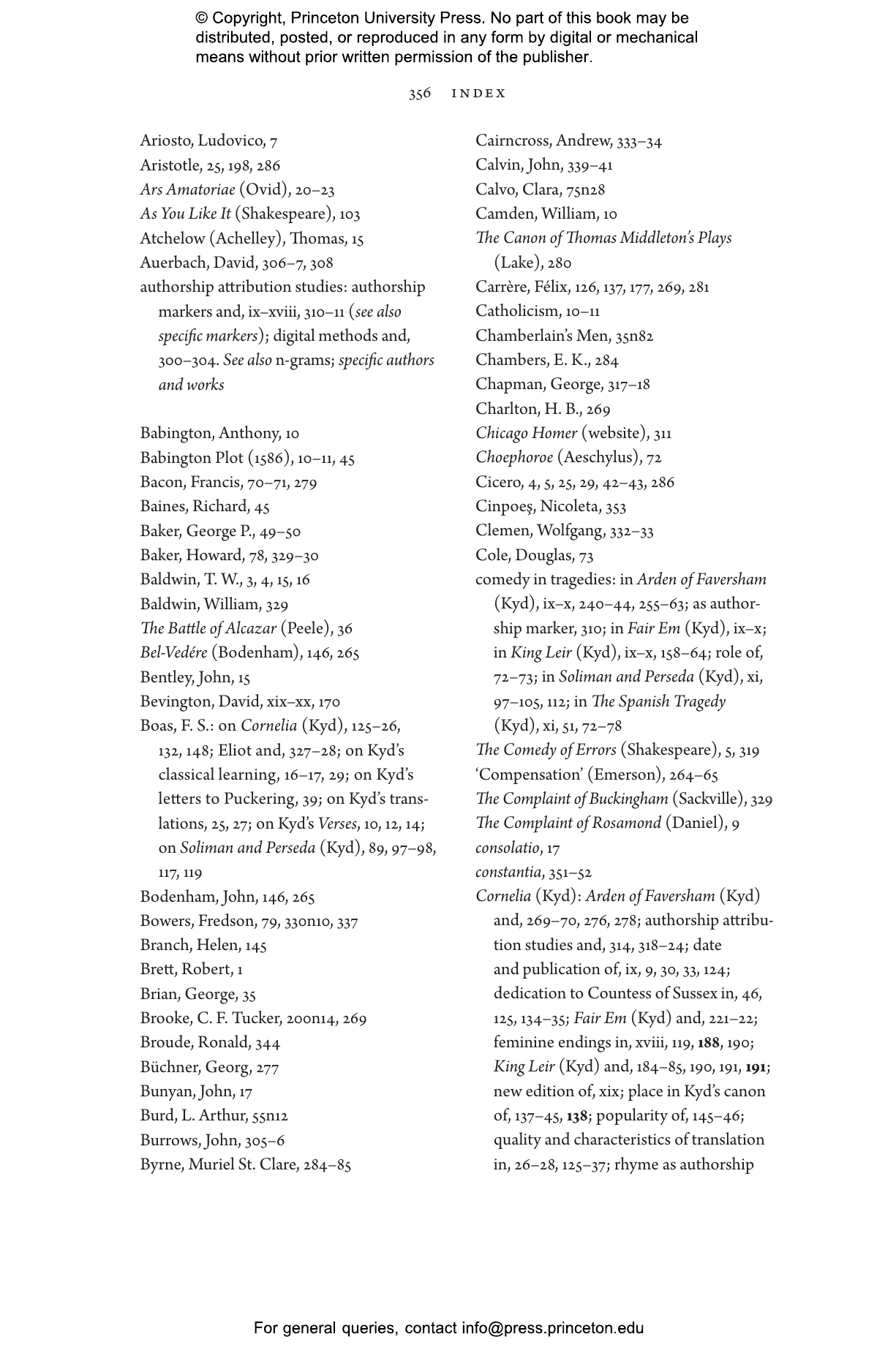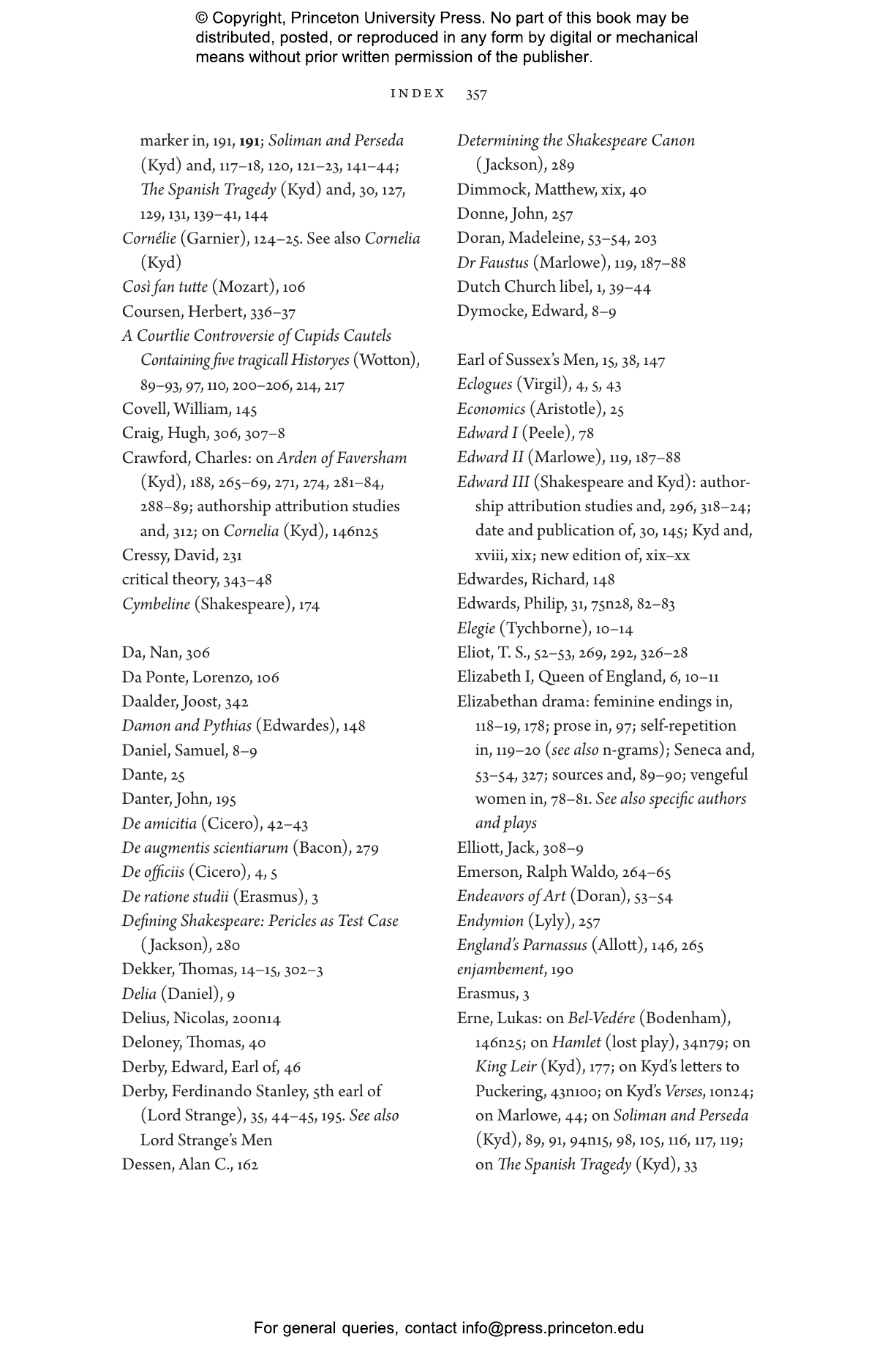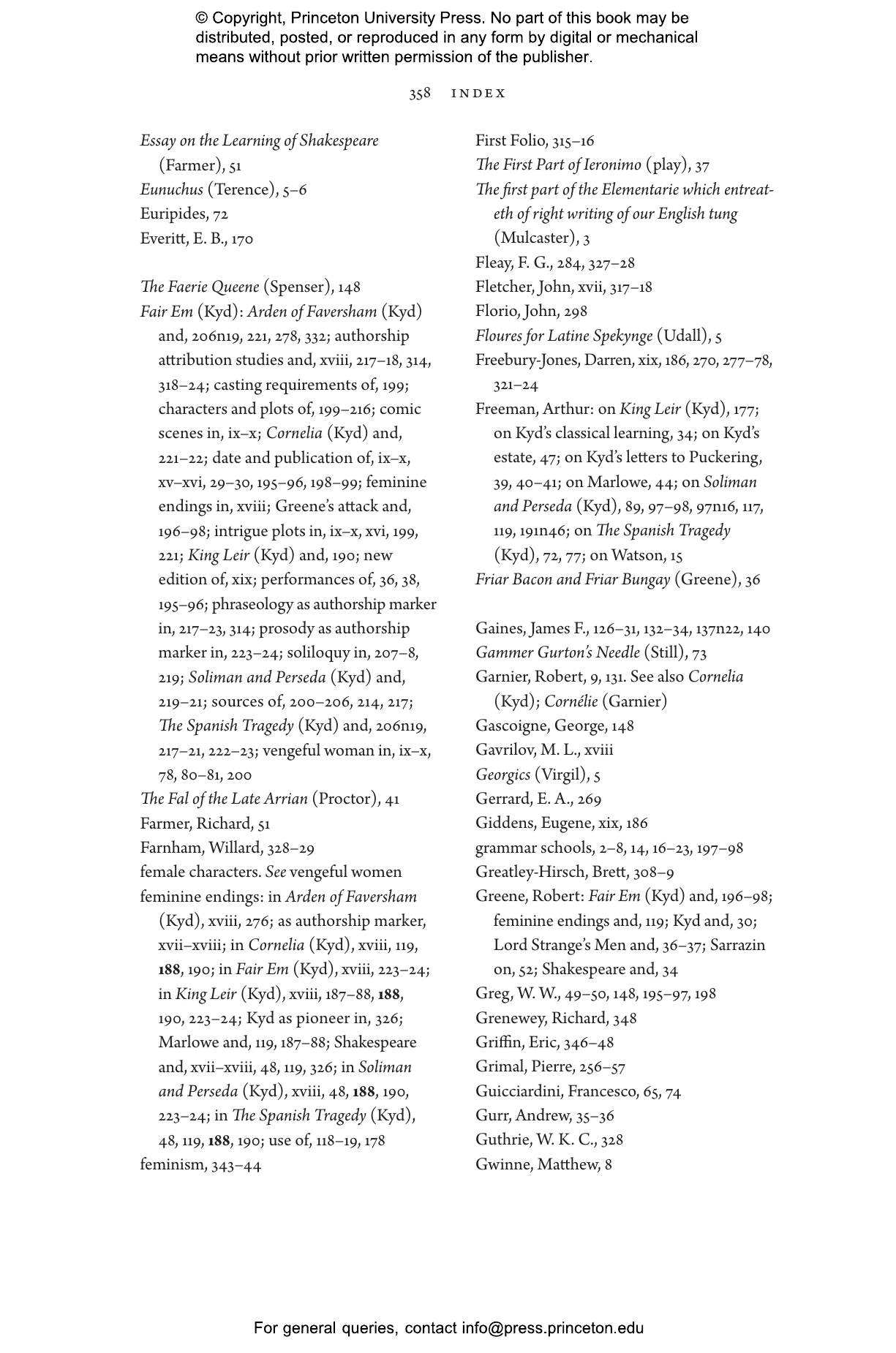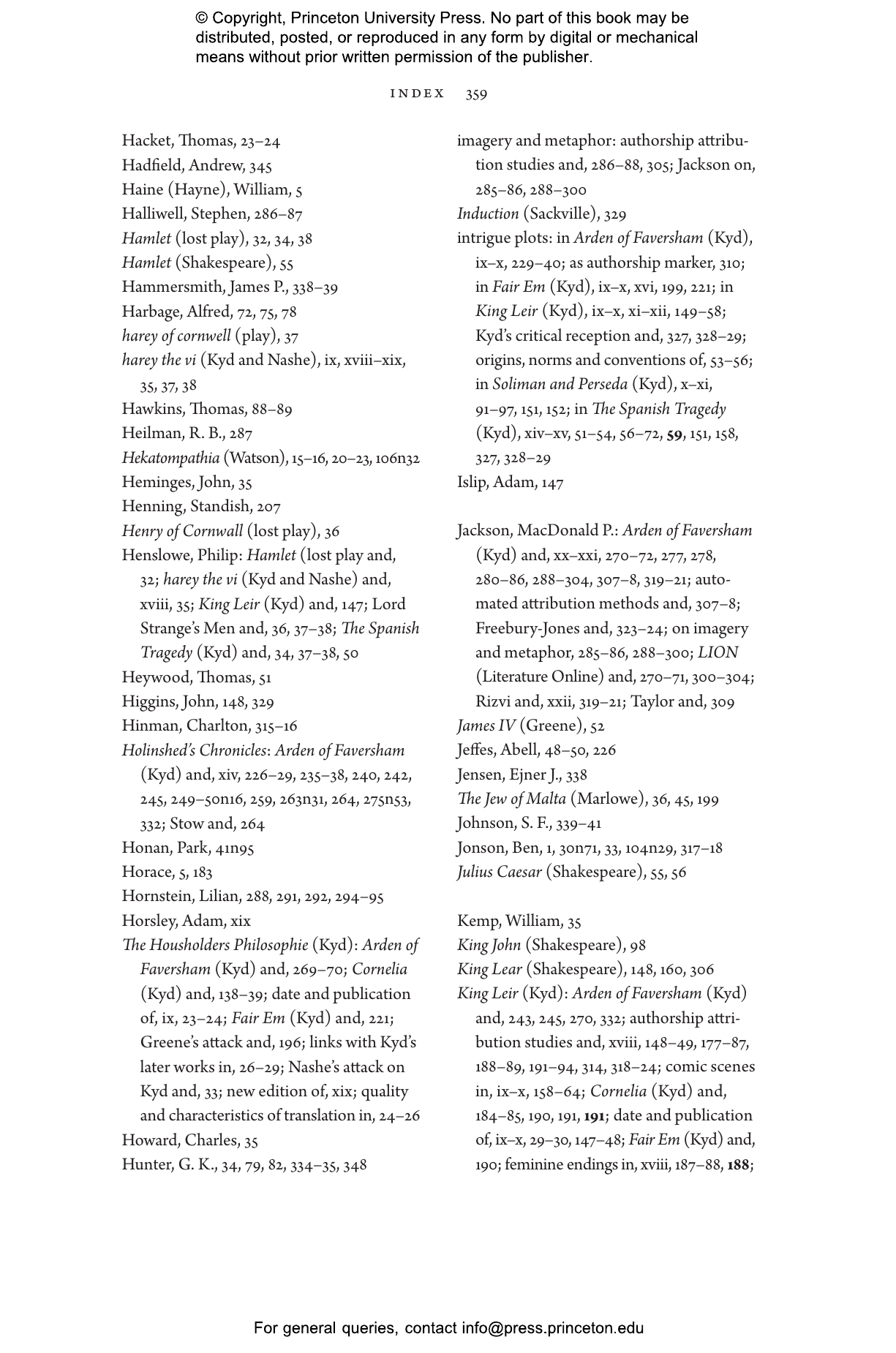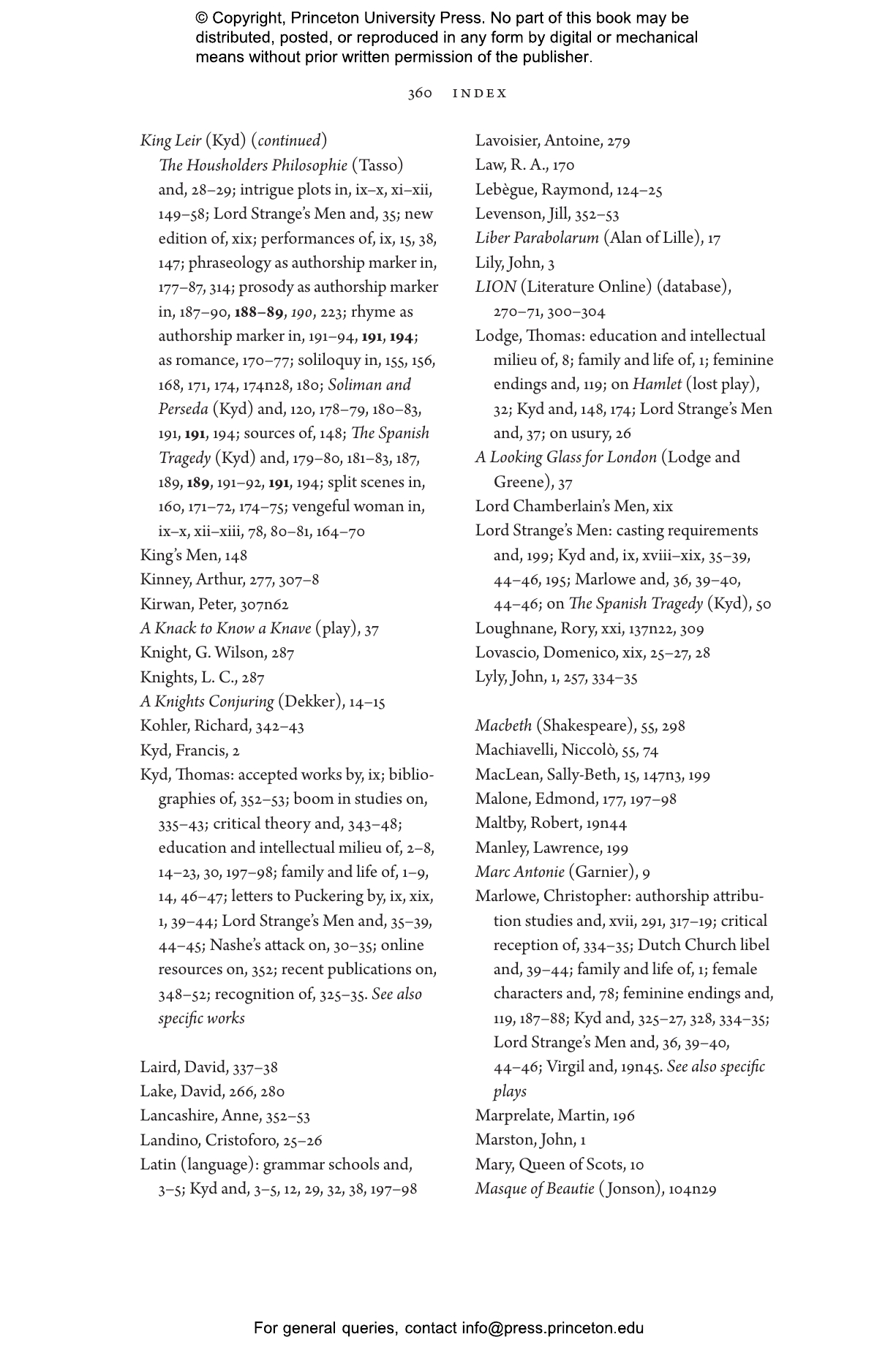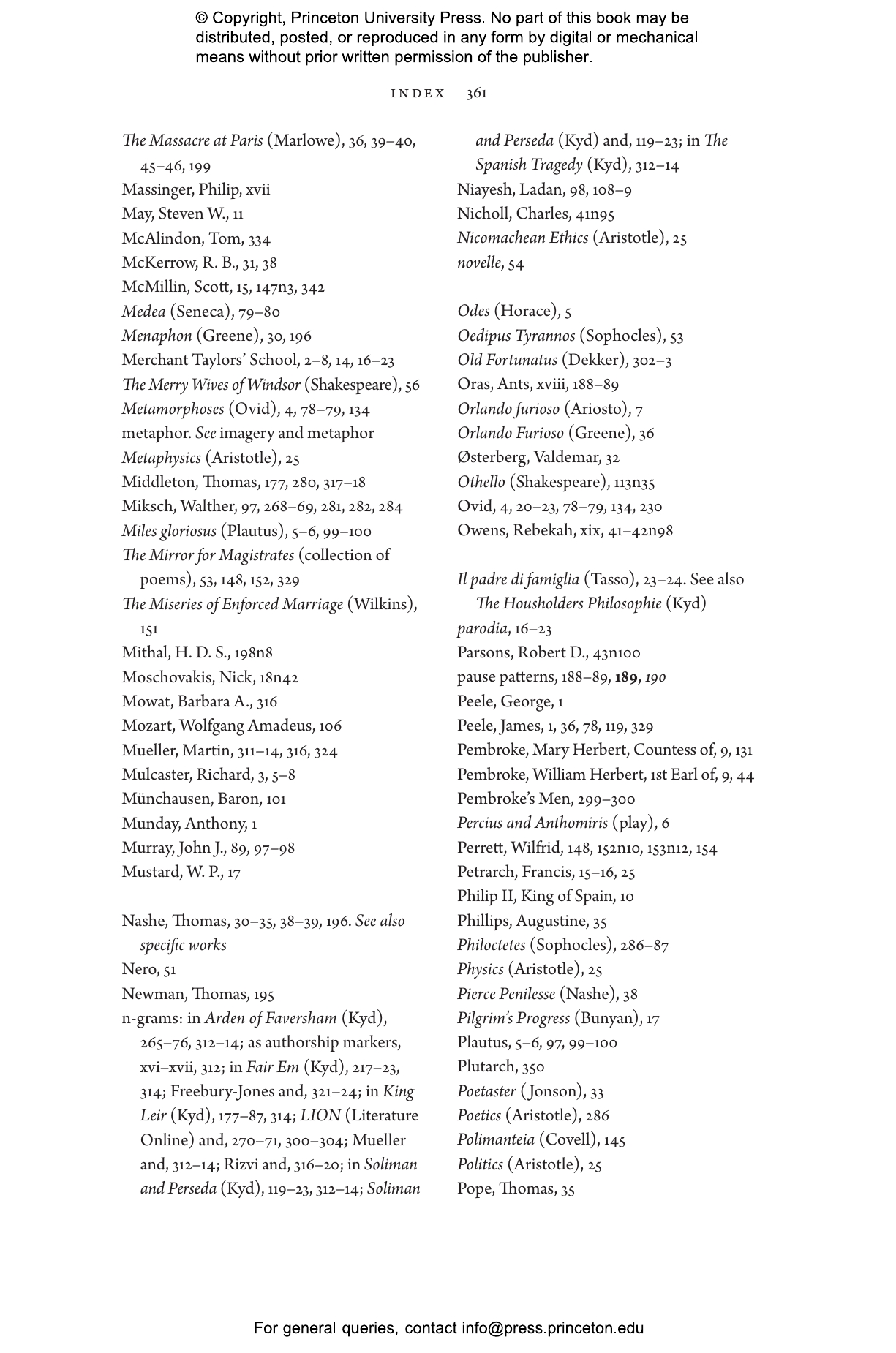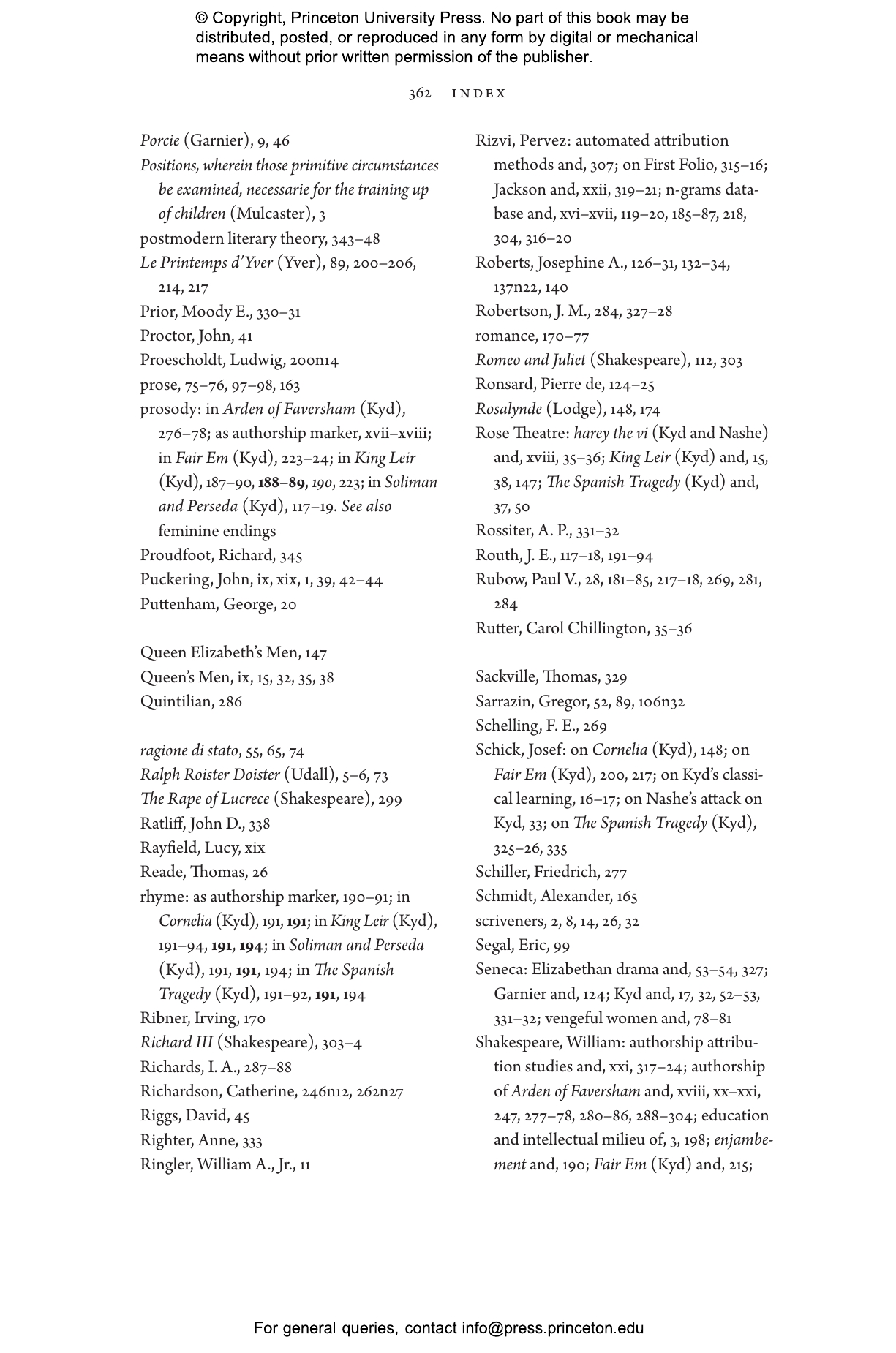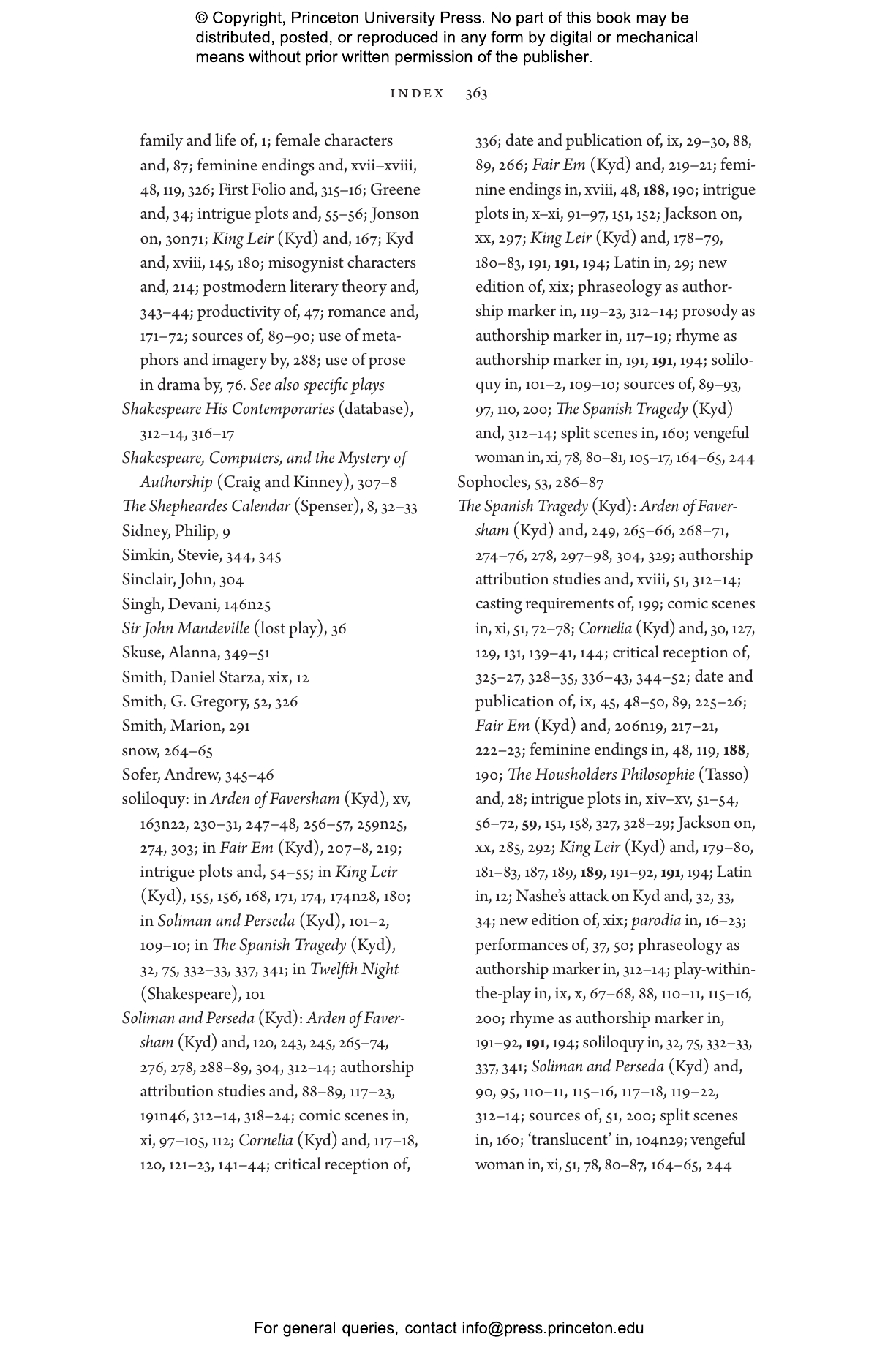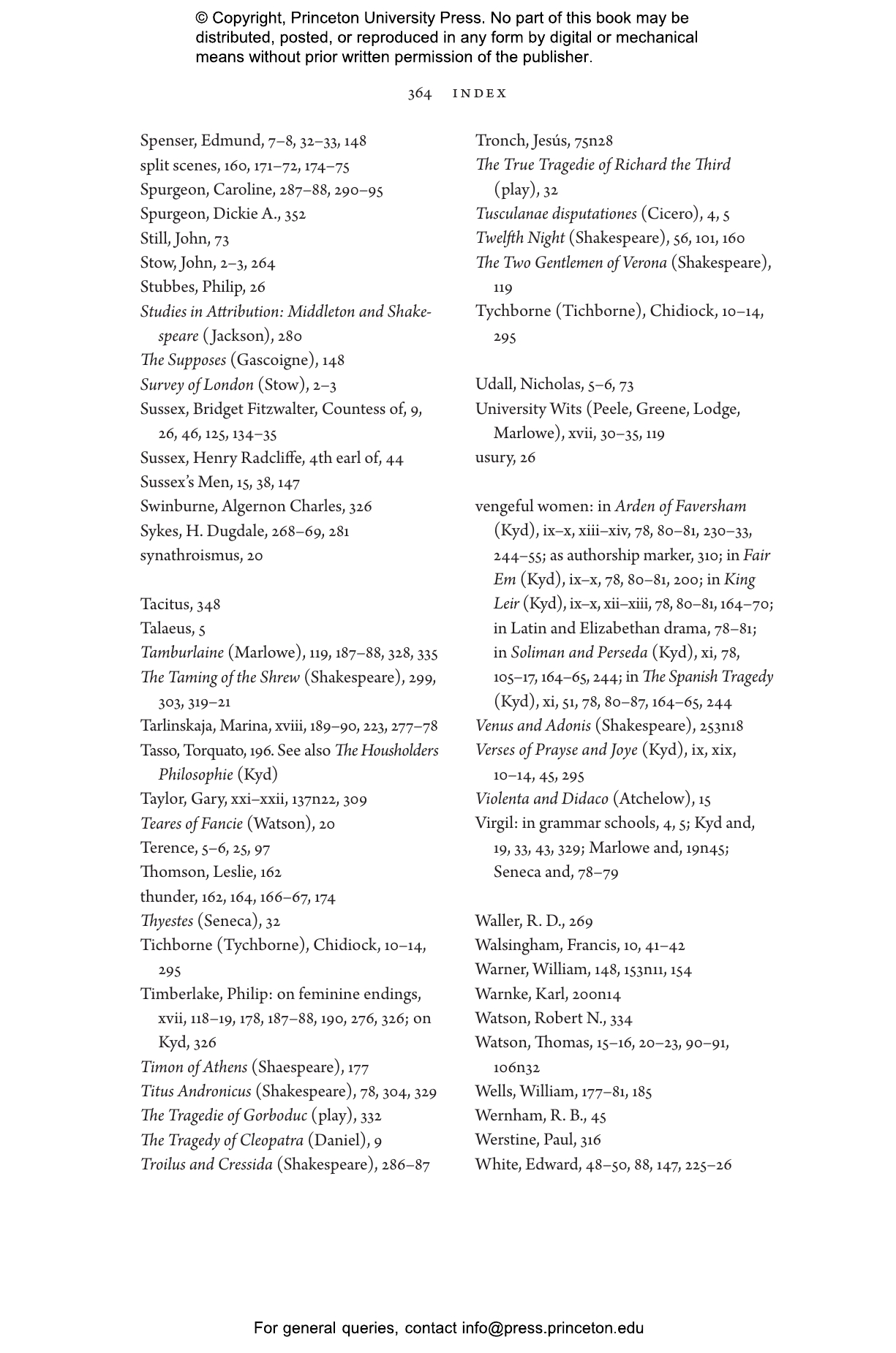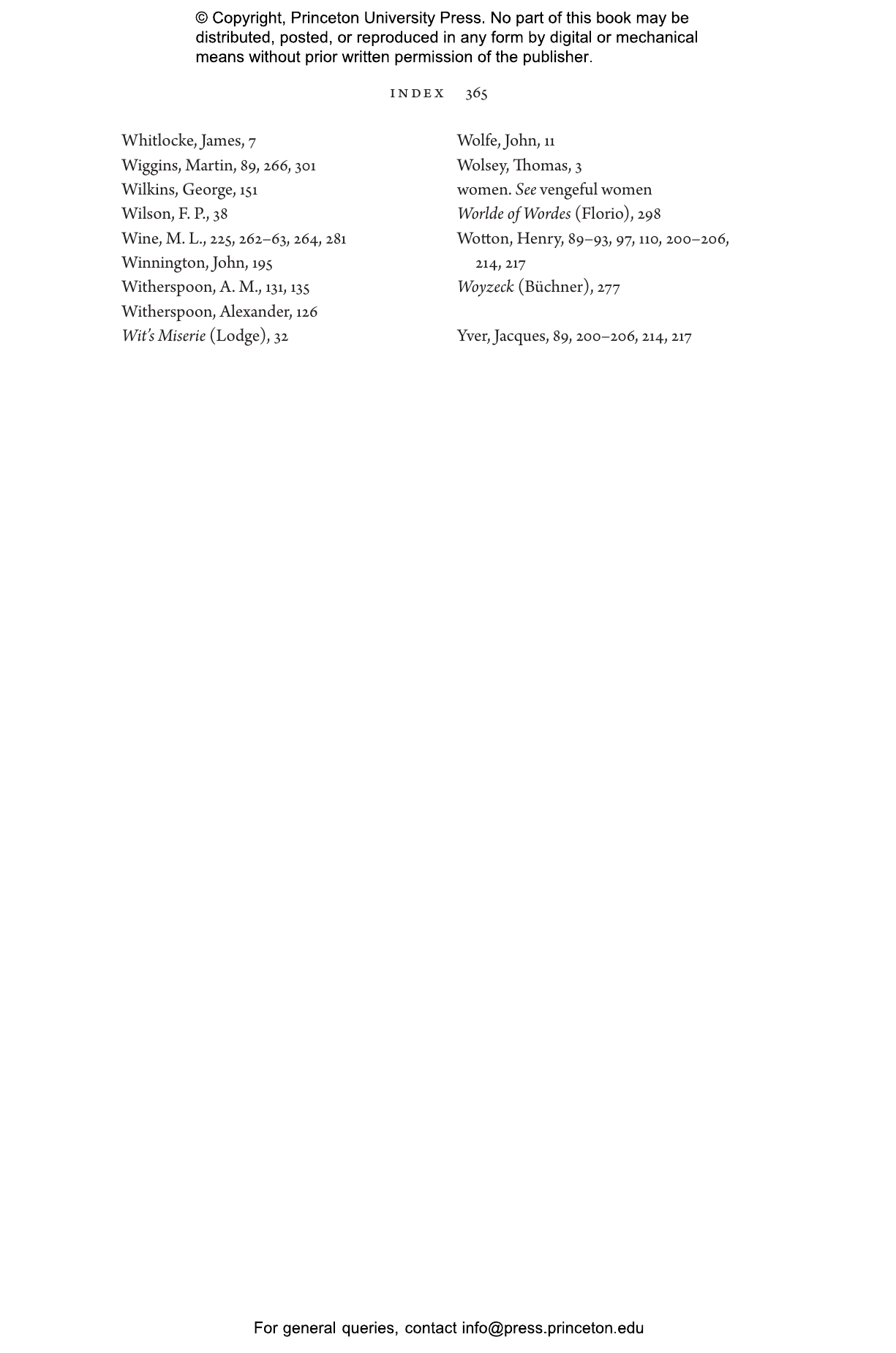Thomas Kyd (1558–1594) was a highly regarded dramatist and the author of The Spanish Tragedy, the first revenge tragedy and the most influential Elizabethan play. In this first full study of his life and works, Brian Vickers discusses Kyd’s accepted canon as well as three additional plays Vickers has newly identified as having been written by Kyd—exciting discoveries that establish him as a major dramatist.
Thomas Dekker, a fellow Elizabethan dramatist, referred to “industrious Kyd,” which suggests a greater output than the three plays traditionally attributed to him—The Spanish Tragedy, Soliman and Perseda, and Cornelia. Kyd worked between 1585 and 1594, when the plague led to the anonymous publication of many plays because of the breakup of several London theatre companies. Researching this corpus, Vickers has identified Kyd’s authorship of three more plays: Arden of Faversham, the first domestic tragedy, King Leir and his three daughters, a tragicomedy that provided Shakespeare with his main source, and Fair Em, a love comedy. These attributions are based on two forms of evidence: unique similarities of plot between Kyd’s acknowledged and newly attributed plays and many unique phrases shared by all six plays as identified by modern software.
Discussing all the plays in detail and placing them in biographical and historical context, Thomas Kyd offers a major reassessment of an underappreciated Elizabethan playwright.
Brian Vickers, a Fellow of the British Academy and an International Honorary Member of the American Academy of Arts and Sciences, is a Senior Research Fellow at the School of Advanced Study at London University. His many books include The One King Lear and Shakespeare, Co-Author: A Historical Study of Five Collaborative Plays. He is editing The Collected Works of Thomas Kyd and The Collected Works of John Ford.
"This is a book full of passion, scholarship and controversy. . . .A book that anyone with scholarly aspirations in this area of literary study should and would want to read and for those with more of a lay interest, you will enjoy discovering more about Thomas Kyd and the debates about what he did or didn’t write."—Terry Potter, The Letterpress Project
“It is no case of hyperbole to say that this is probably the most eagerly anticipated book in early modern authorship studies for many years. Broadening our understanding of the canon of Thomas Kyd is of the utmost importance, and discussions concerning its contours have already generated considerable interest. This book will have a huge impact.”—Darren Freebury-Jones, author of Shakespeare’s Tutor: The Influence of Thomas Kyd
“Brian Vickers’s Thomas Kyd is beautifully unified, accessibly written, and convincing.”—Paul Werstine, author of Early Modern Playhouse Manuscripts and the Editing of Shakespeare
“Brian Vickers’s study of the immensely important playwright Thomas Kyd contains much that is genuinely new and challenges received wisdom. It is a book every serious student of English Renaissance drama will want to read.”—Lukas Erne, University of Geneva
“Feisty and combative as ever, Brian Vickers has turned his formidable learning and literary detective skills to Thomas Kyd, an underrated dramatist if ever there was one. Expanding the Kyd canon considerably, Vickers demonstrates how the pioneering author was schooled in Latinate culture, was able to combine tragedy and comedy in ways few could rival, and was fascinated by powerful female characters. This challenging book will be required reading for anyone interested in the Shakespearean stage.”—Andrew Hadfield, author of John Donne: In the Shadow of Religion
This publication has been produced to meet accepted Accessibility standards and contains various accessibility features including concise image descriptions, a table of contents, a page list to navigate to pages corresponding to the print source version, and elements such as headings for structured navigation. Appearance of the text and page layout can be modified according to the capabilities of the reading system.
Accessibility Features
-
WCAG v2.2
-
WCAG level AA
-
Table of contents navigation
-
Single logical reading order
-
Short alternative textual descriptions
-
Print-equivalent page numbering
-
Landmark navigation
-
Index navigation
-
Epub Accessibility Specification 1.1
-
ARIA roles provided
-
All non-decorative content supports reading without sight
-
No known hazards or warnings


